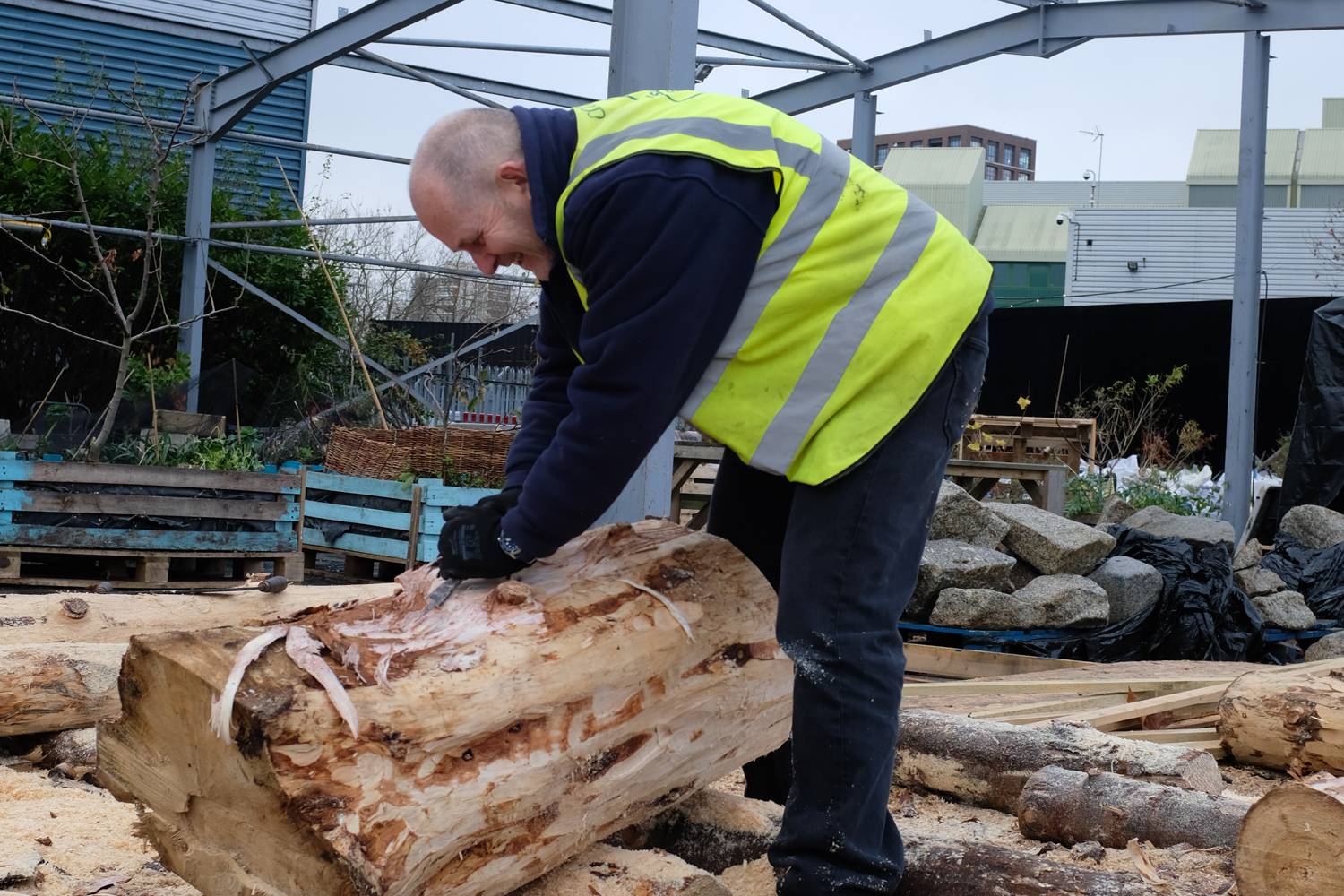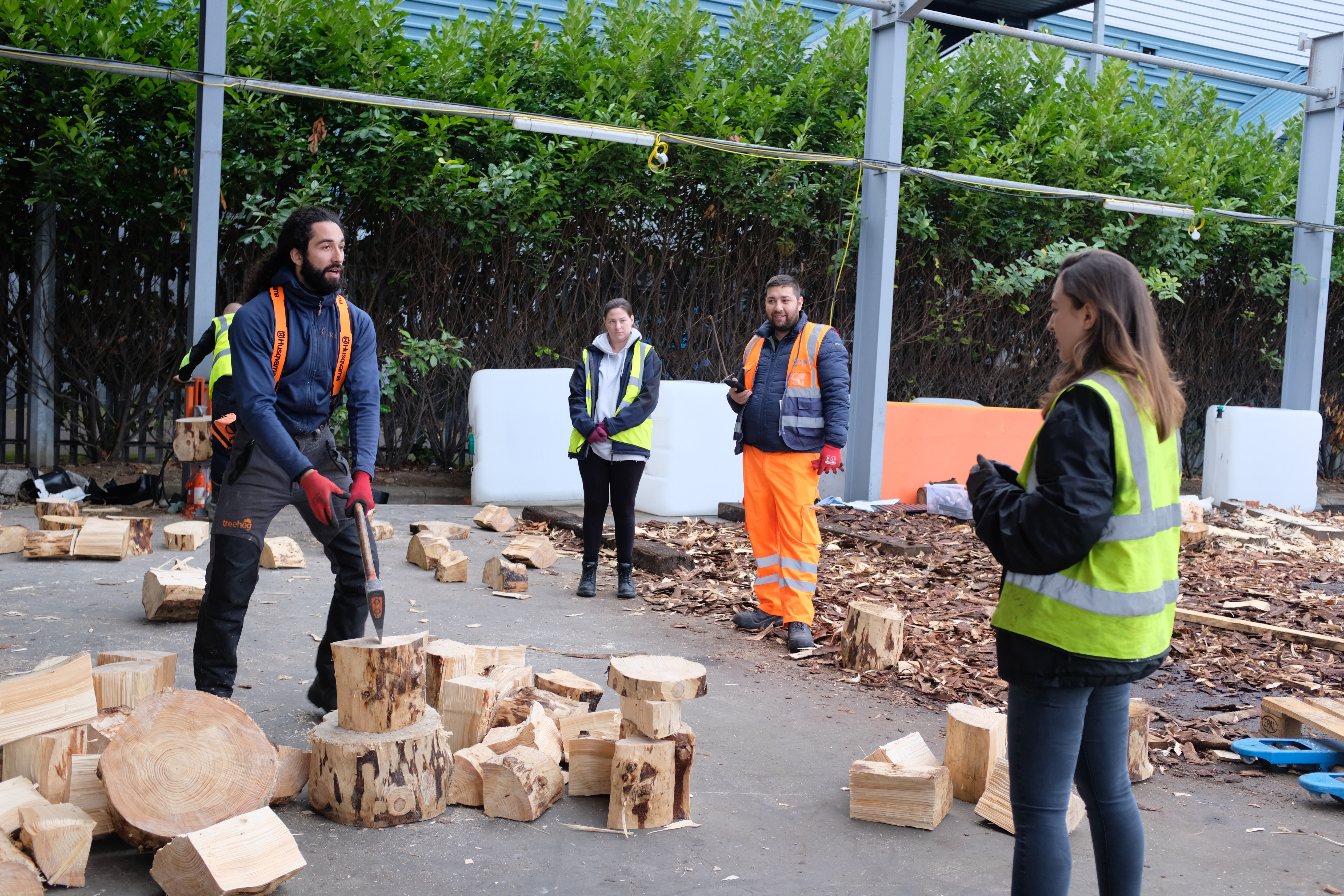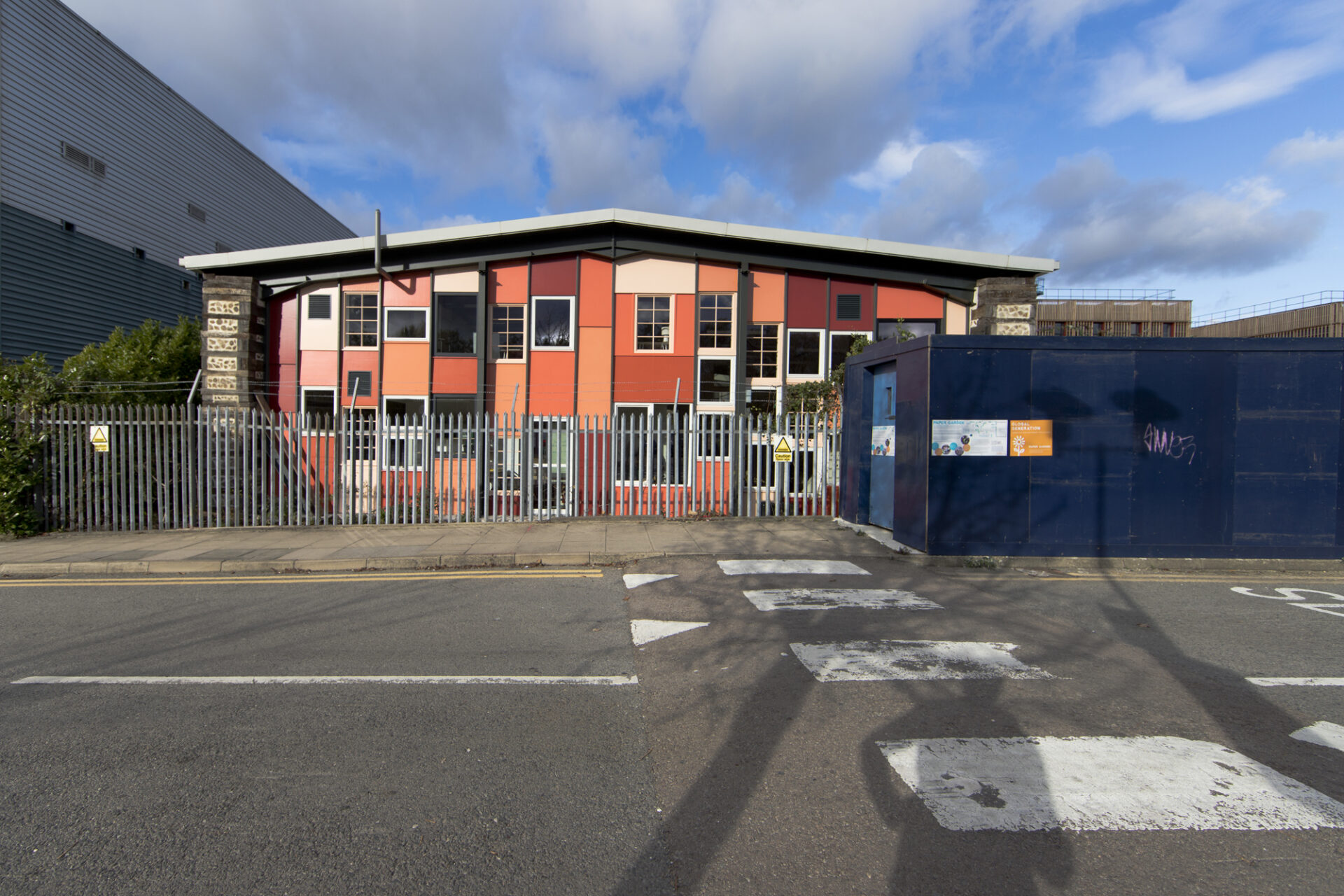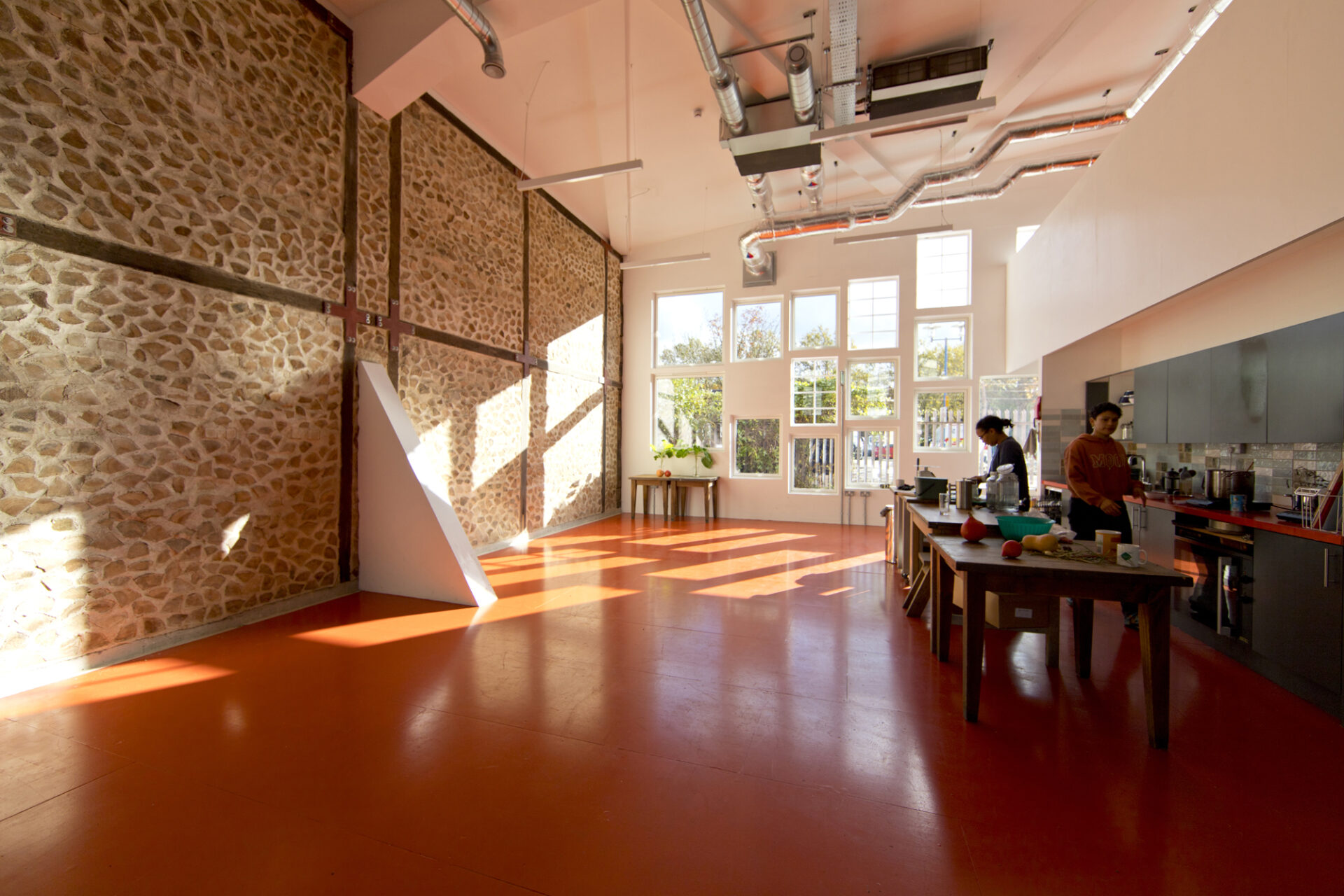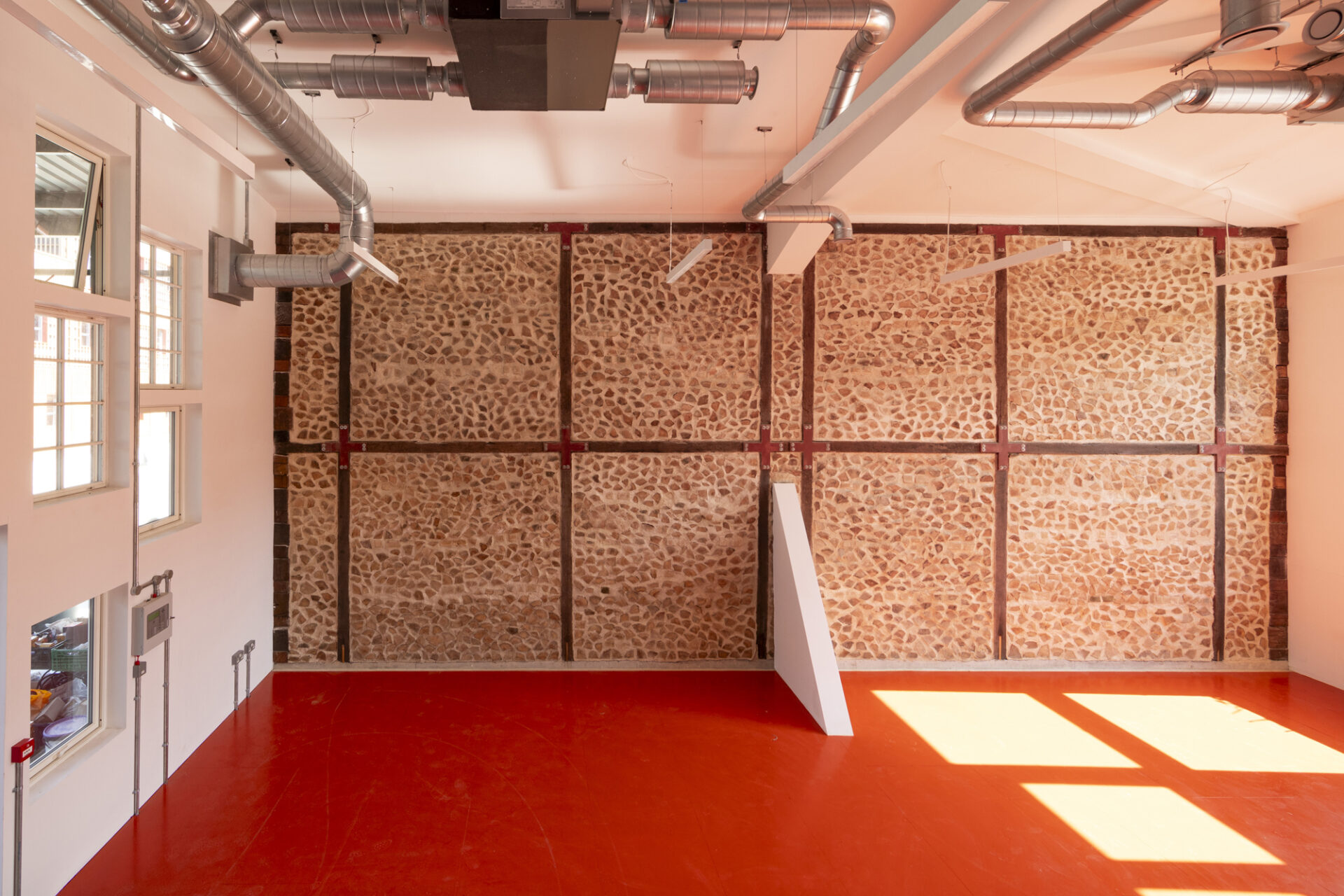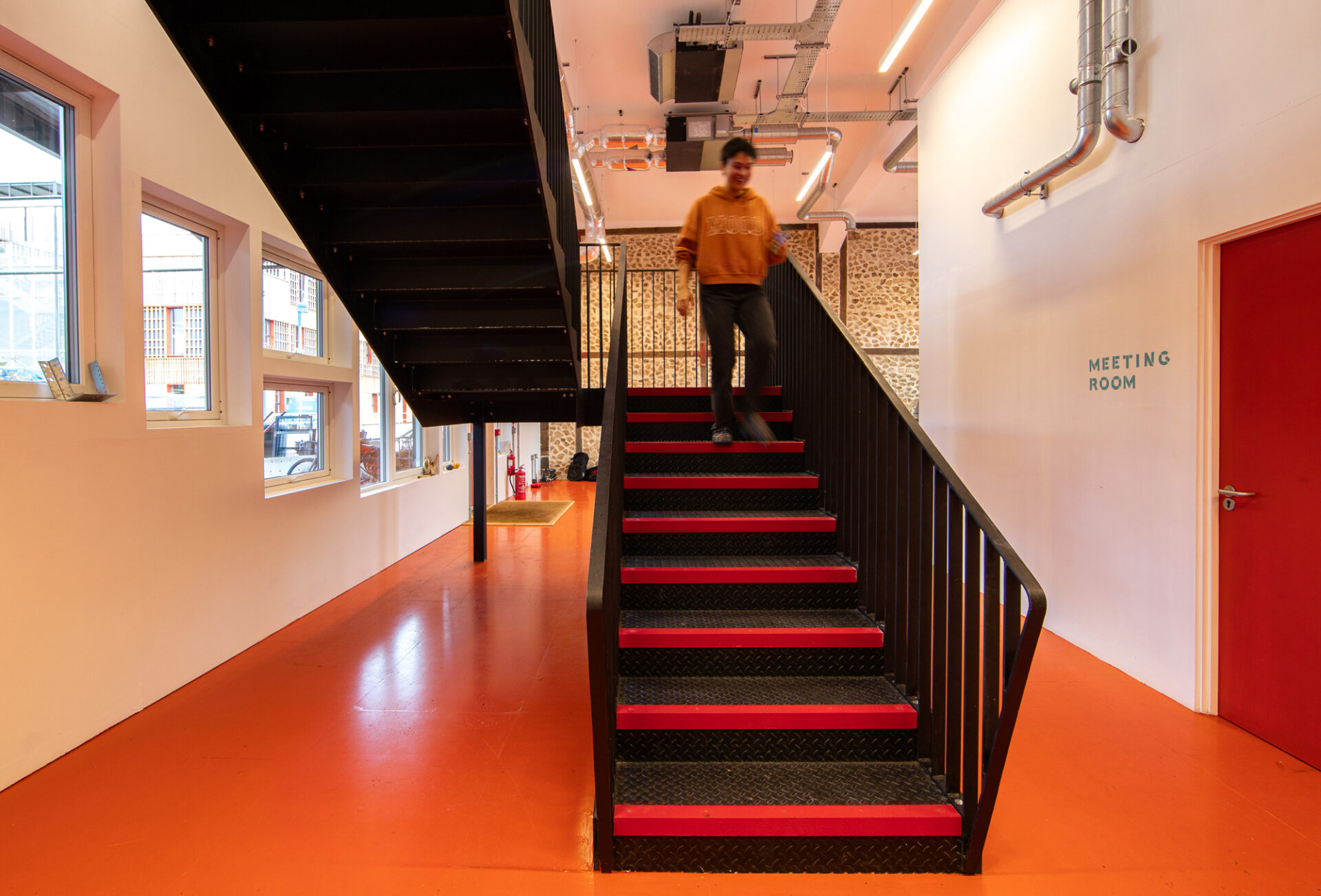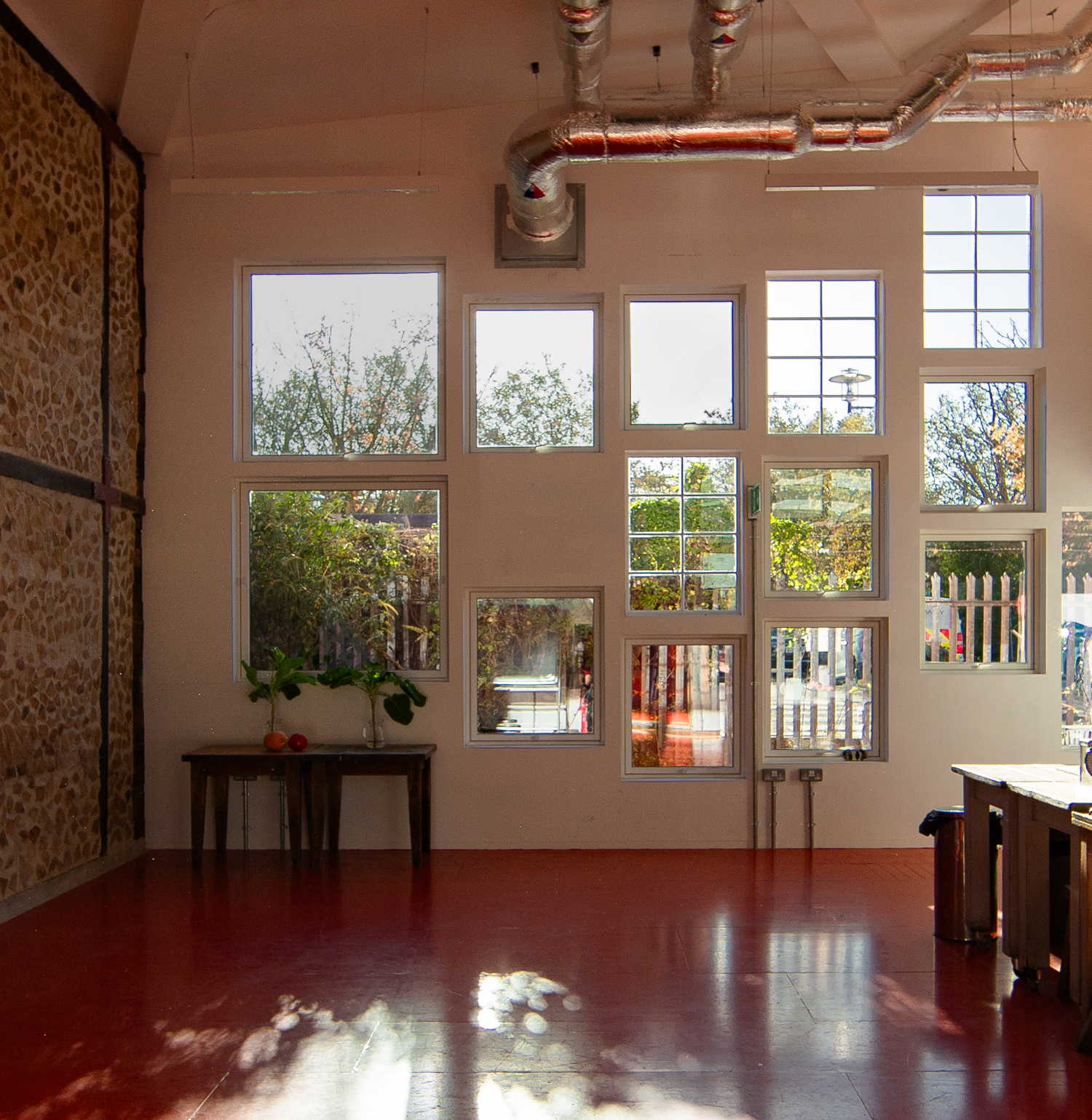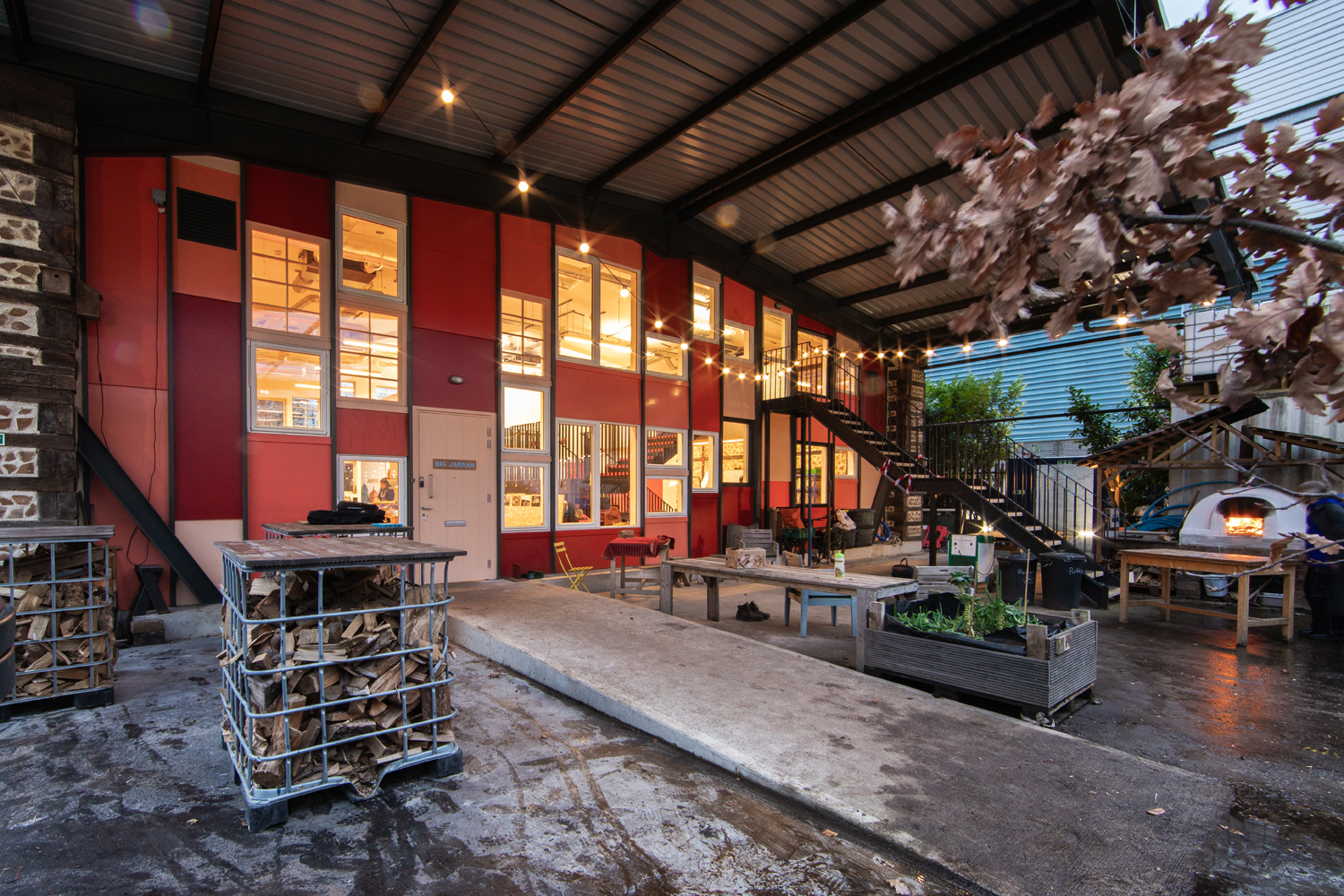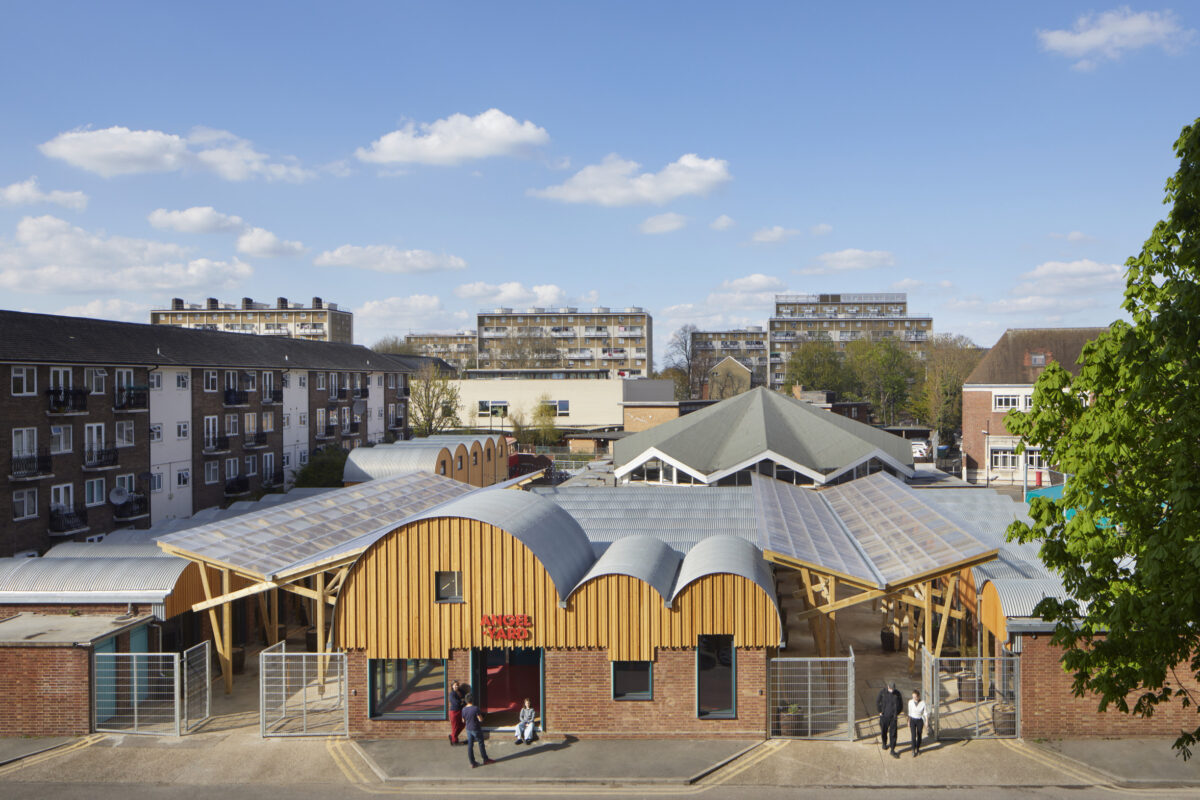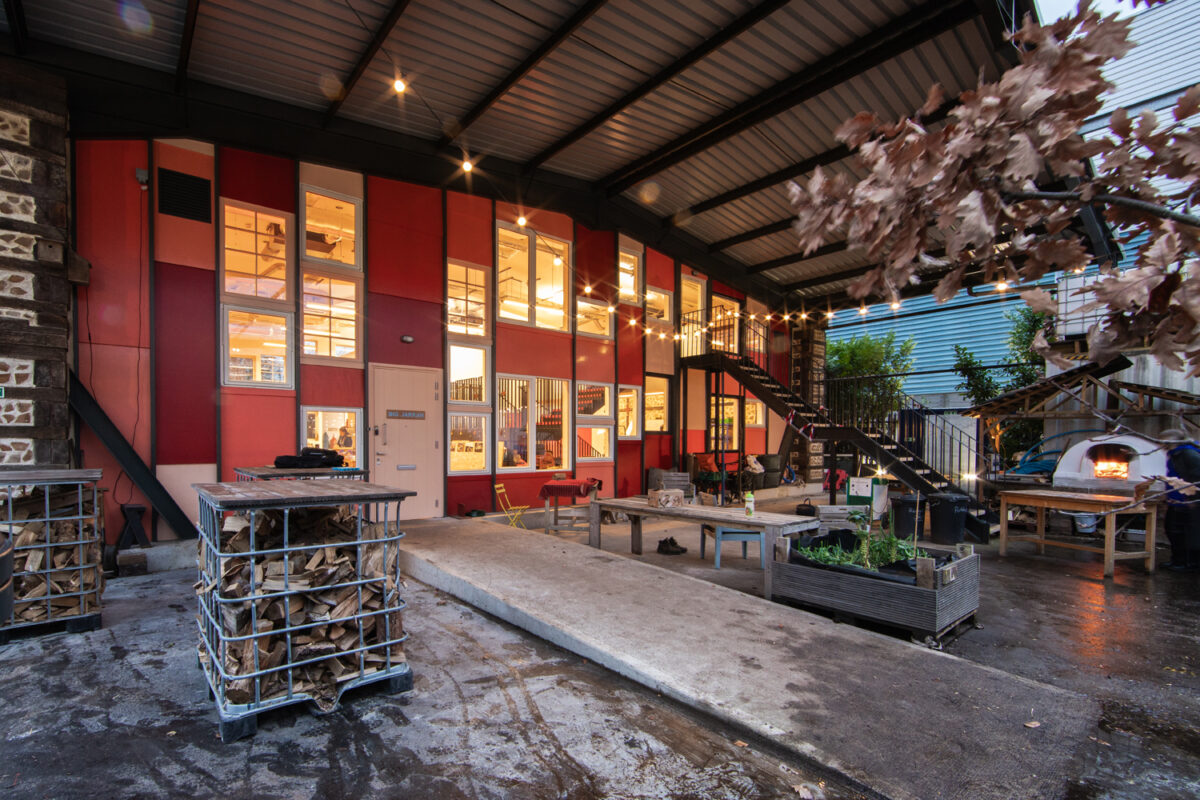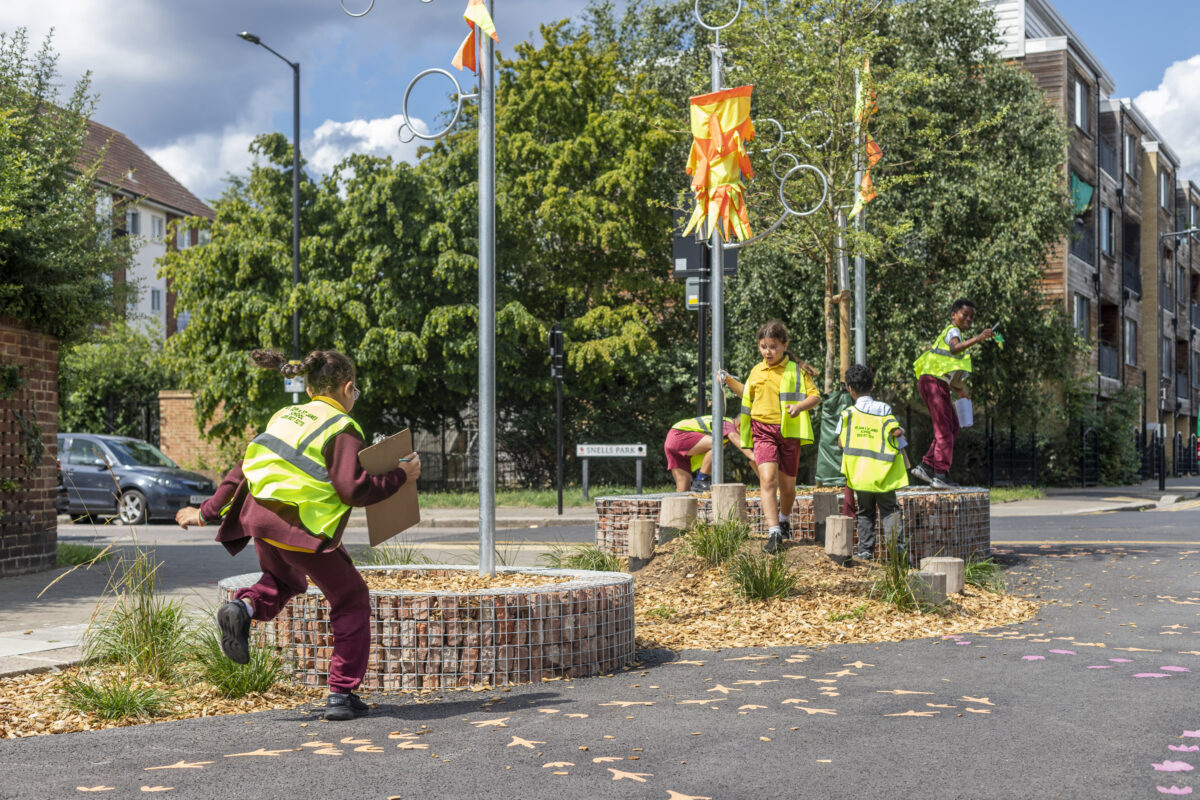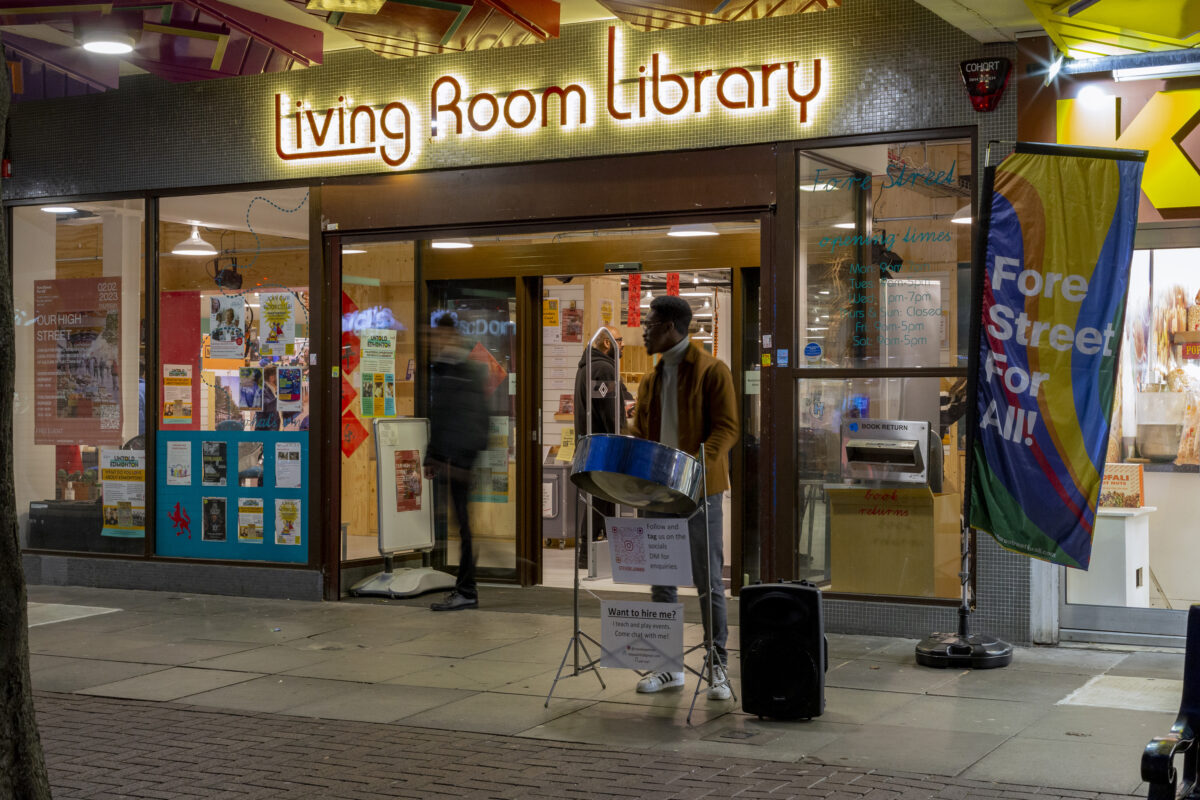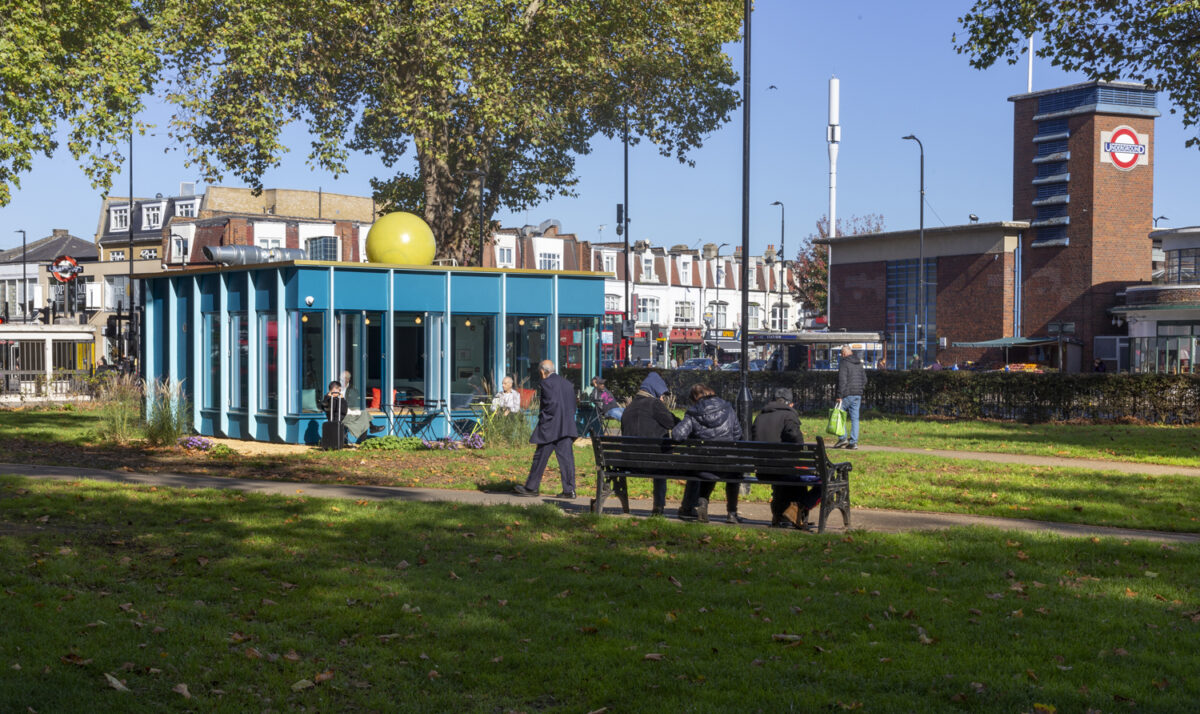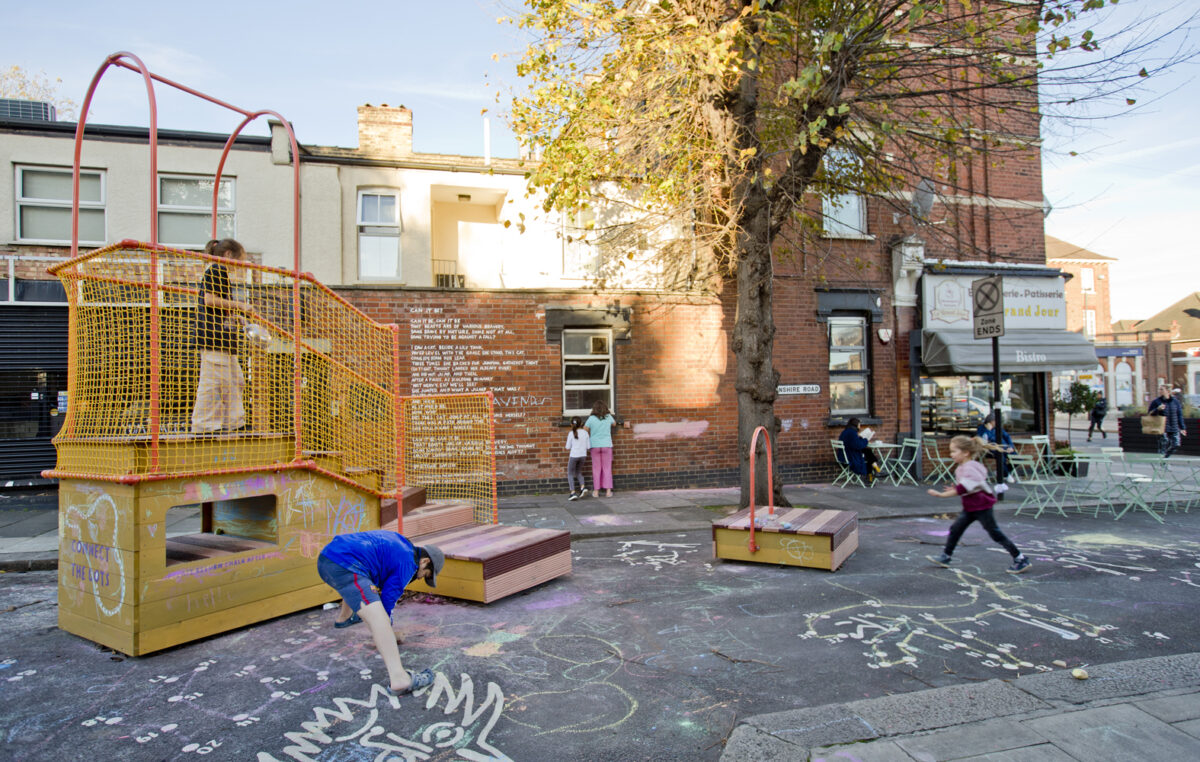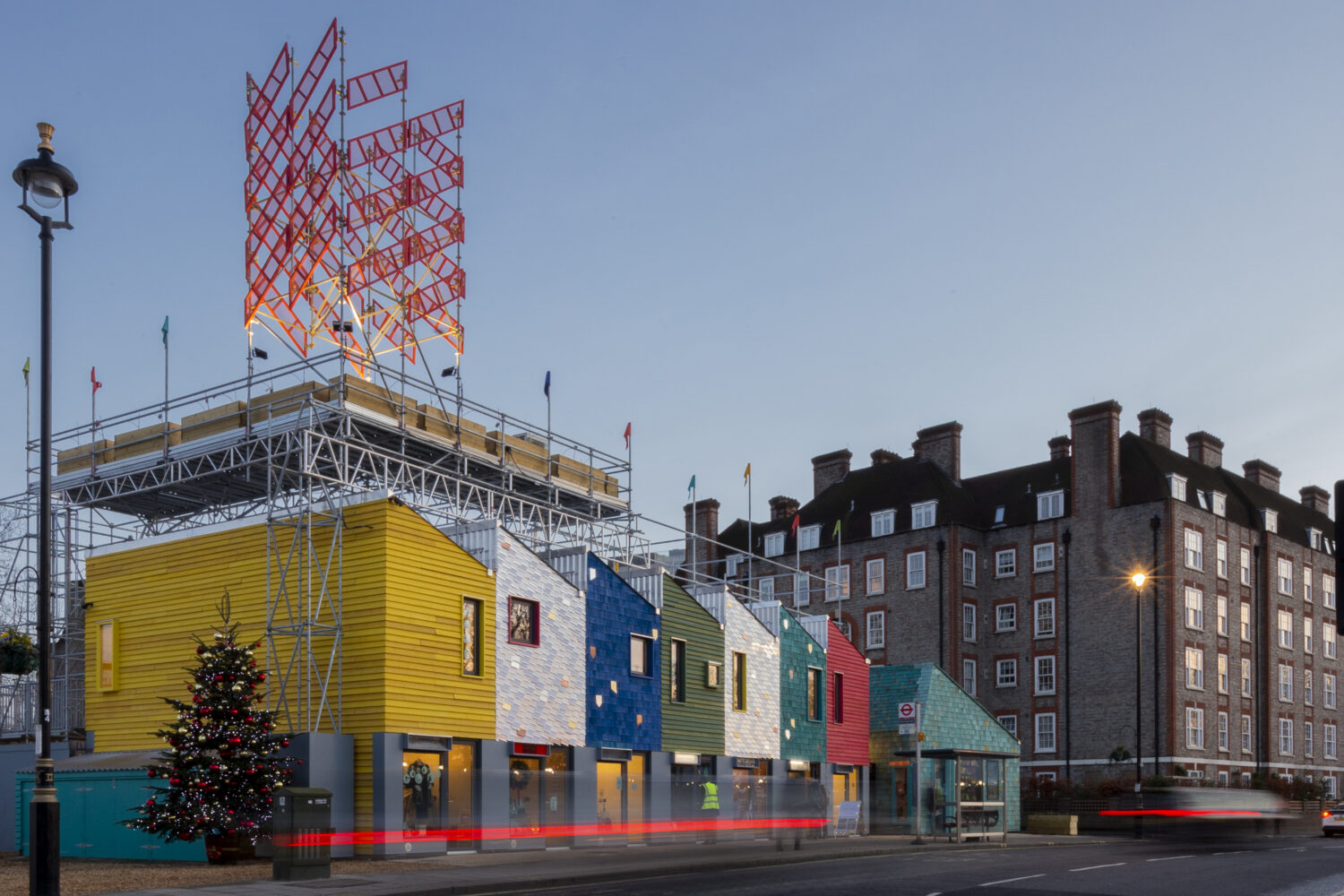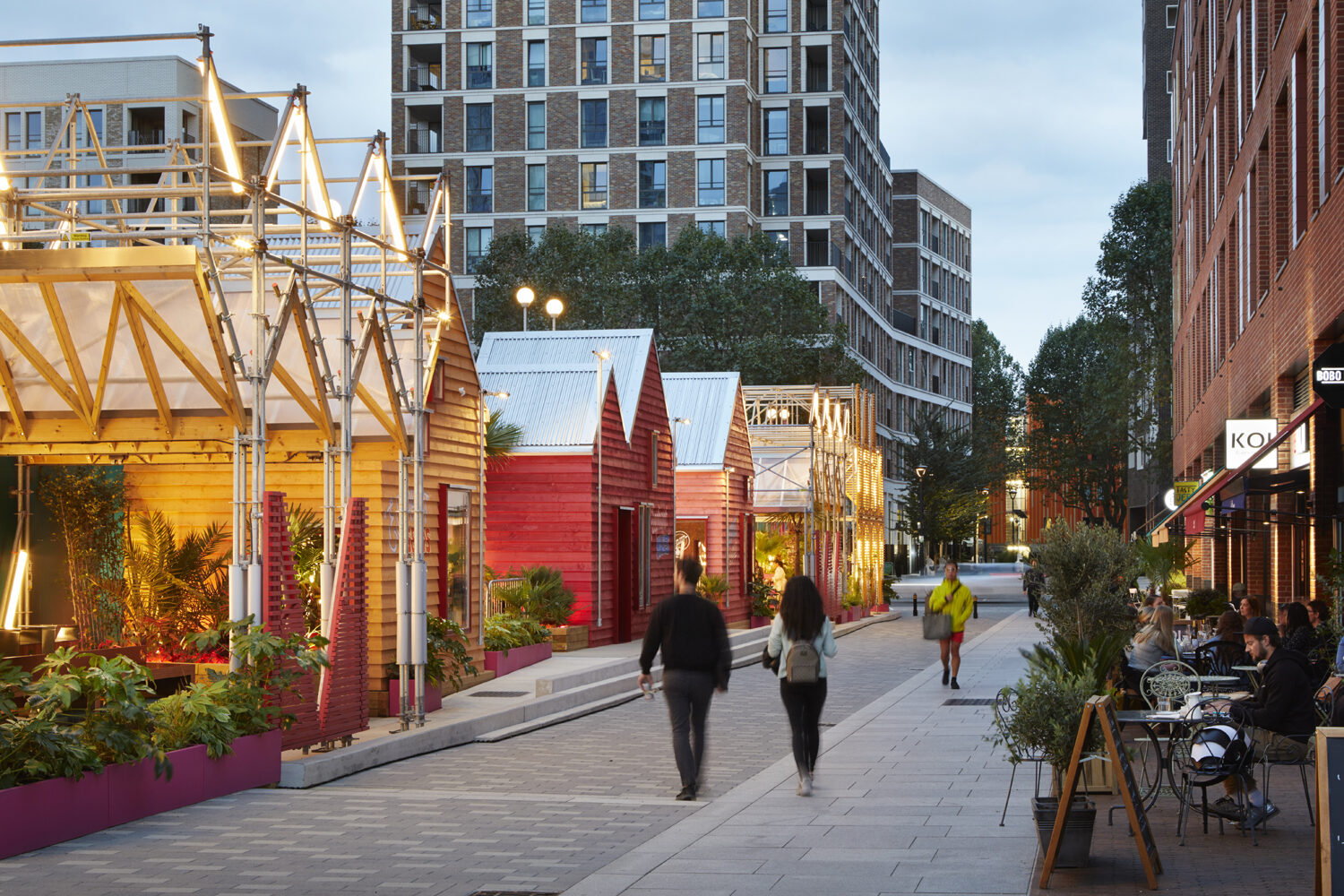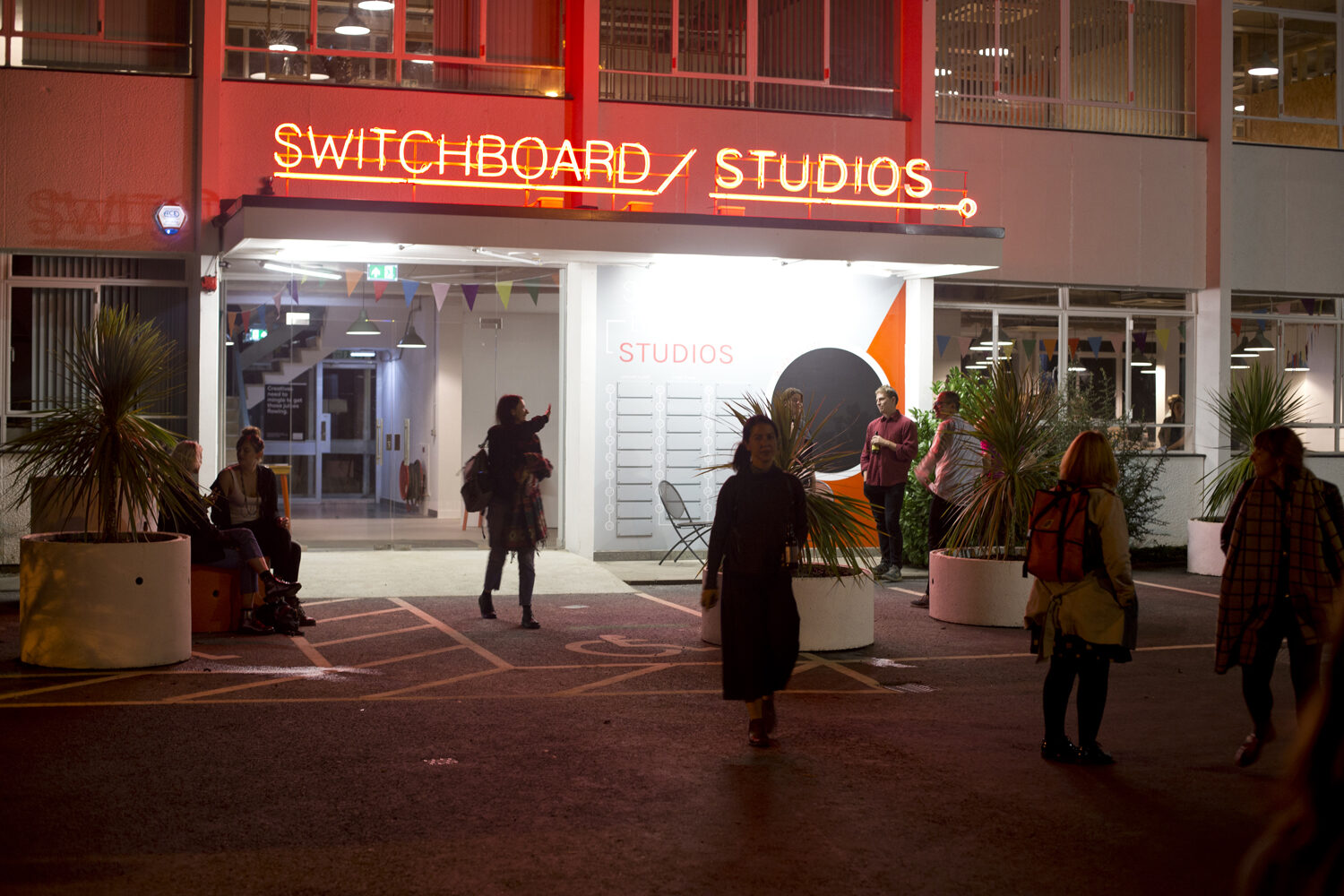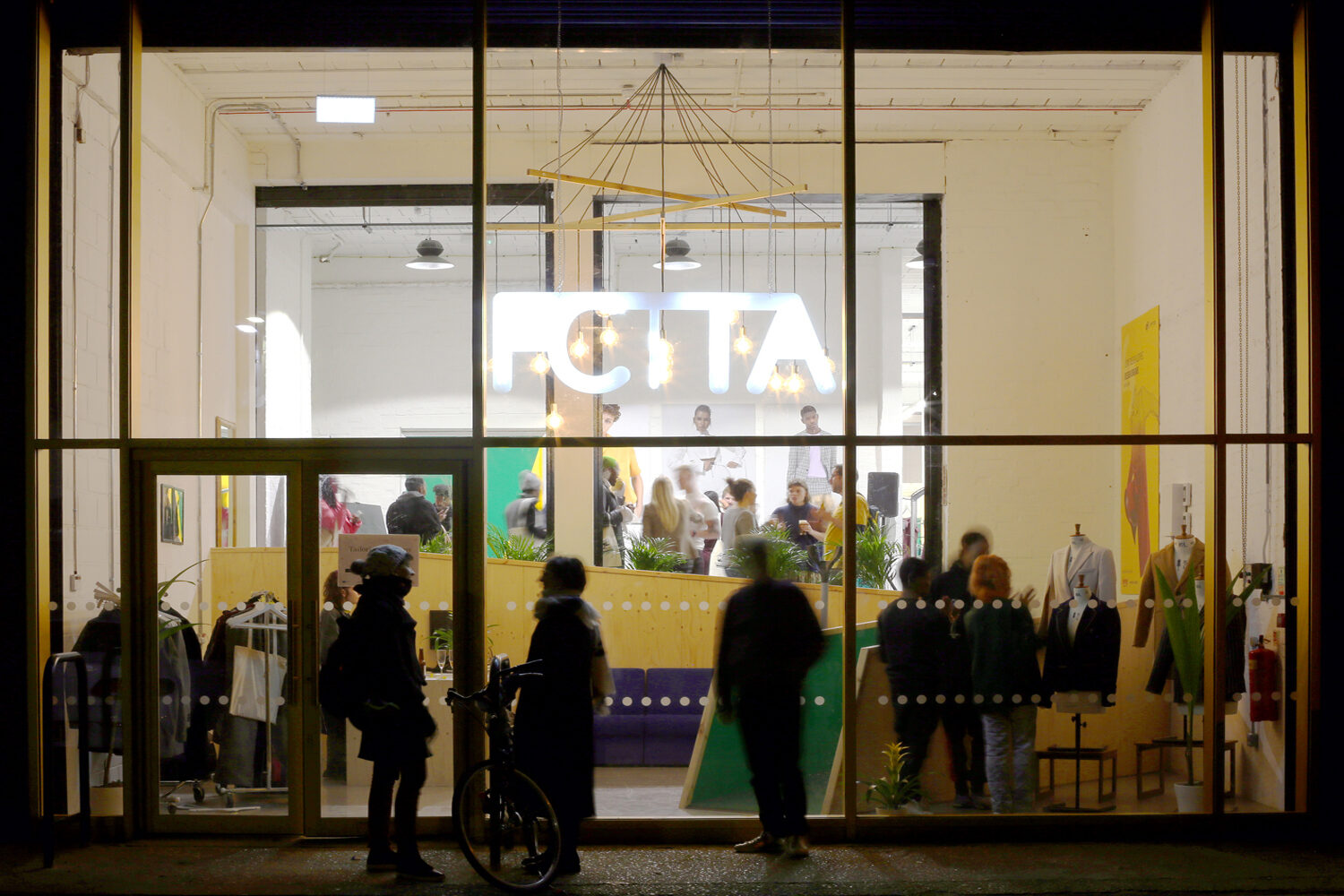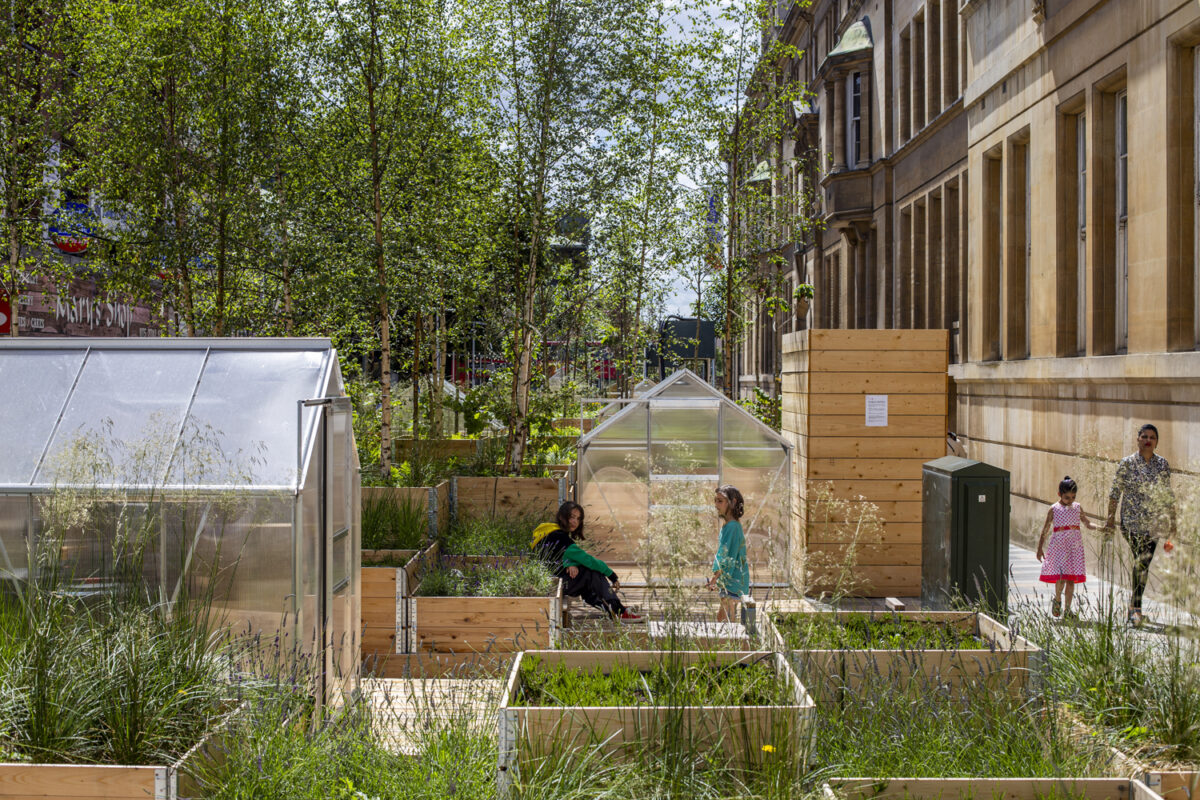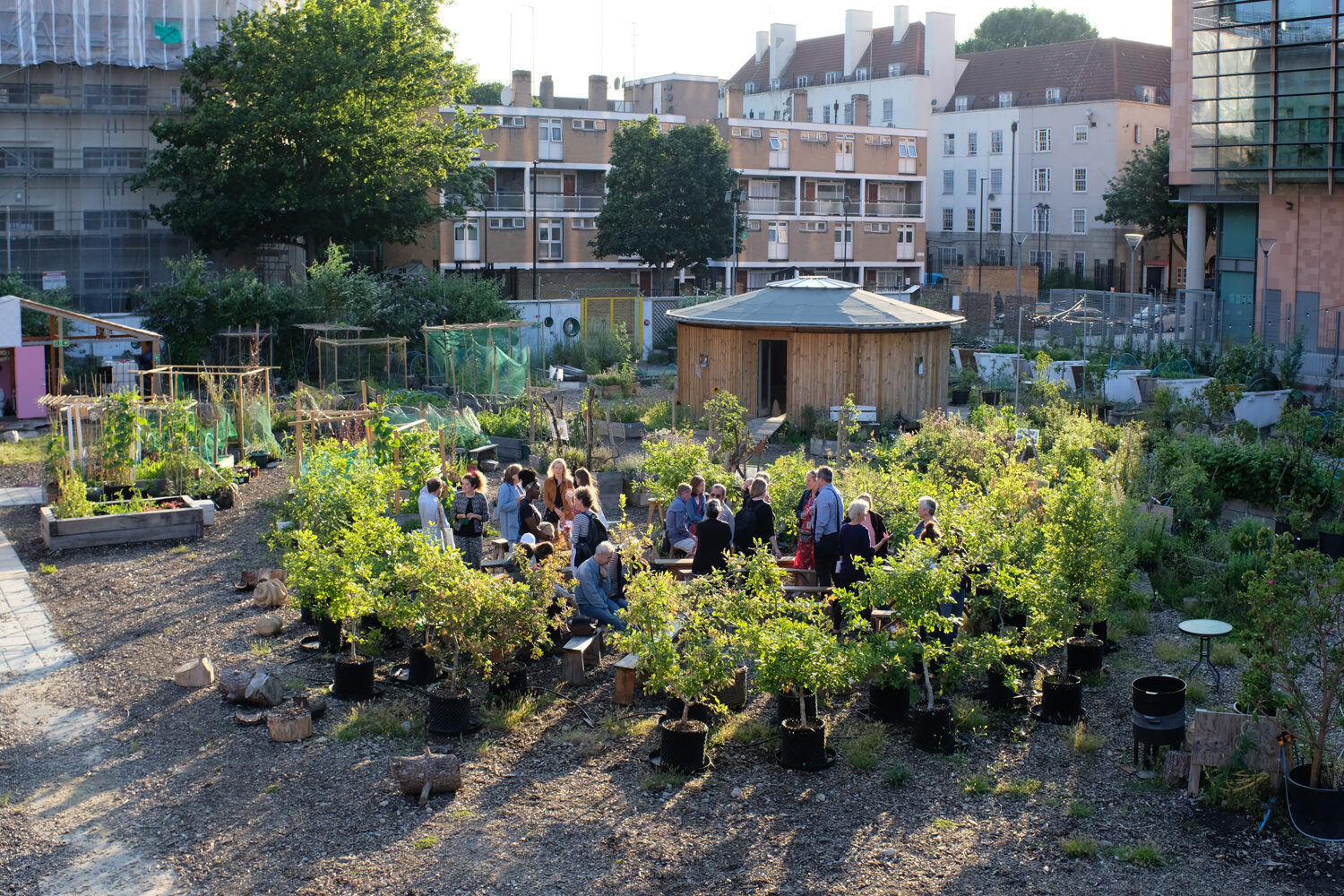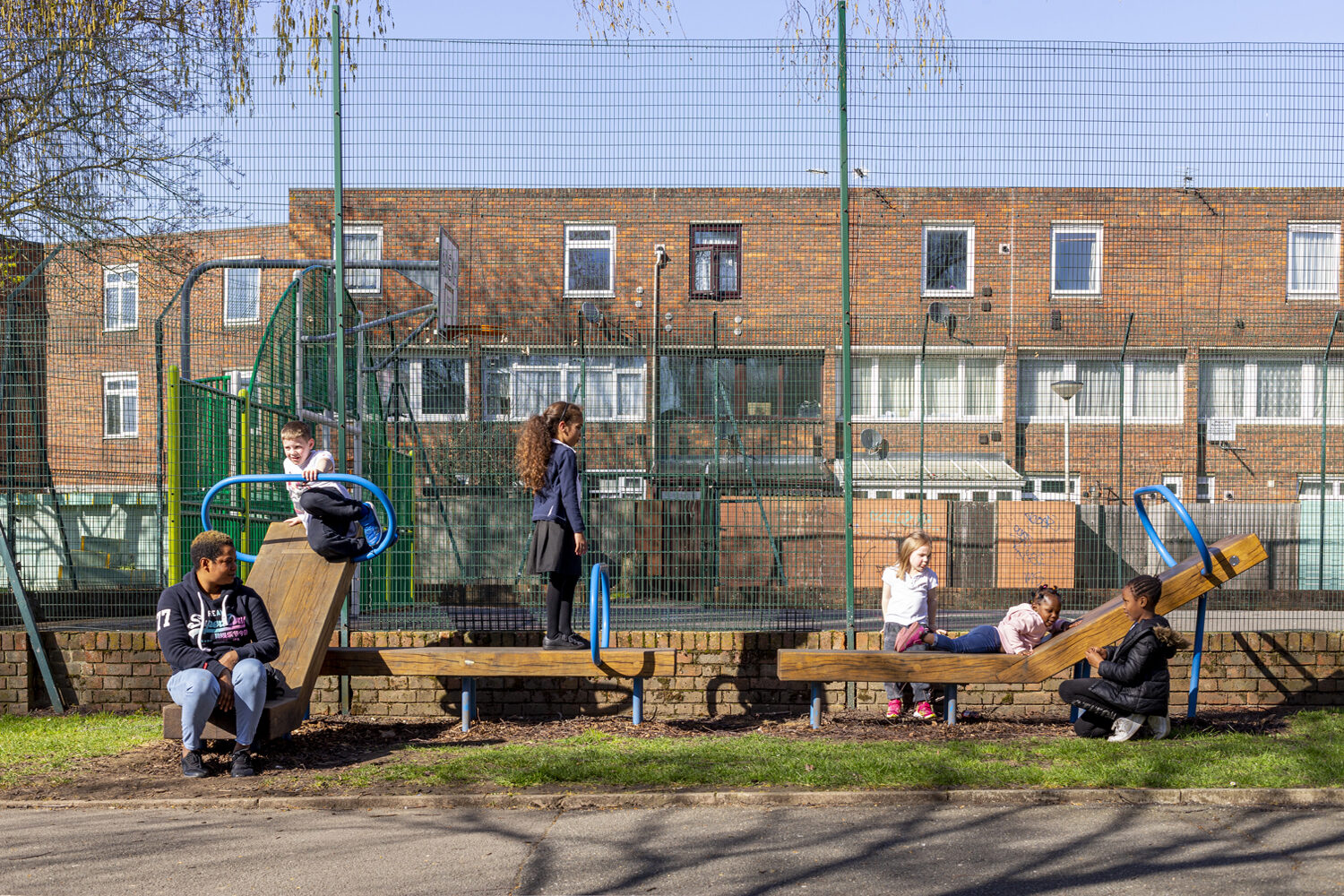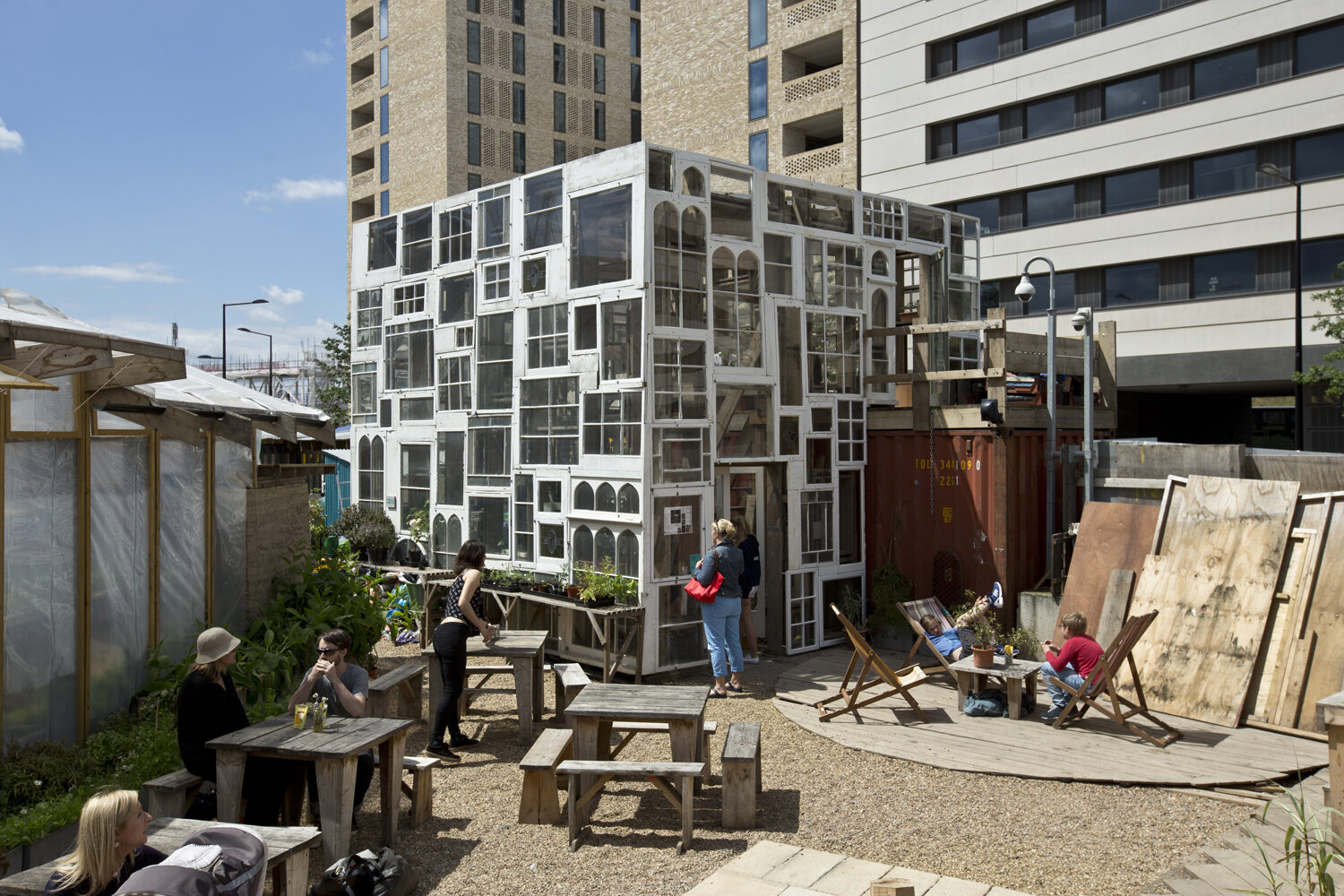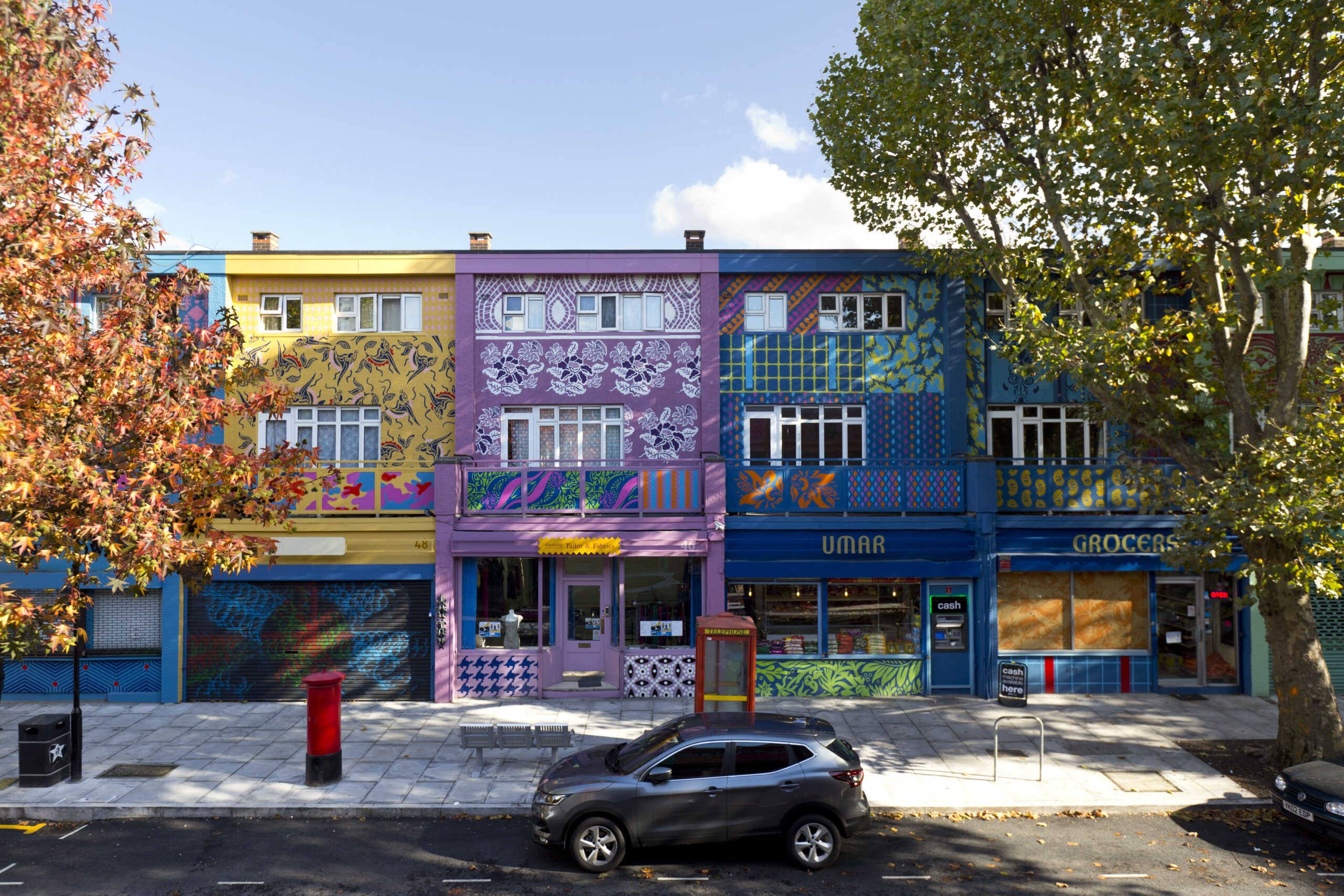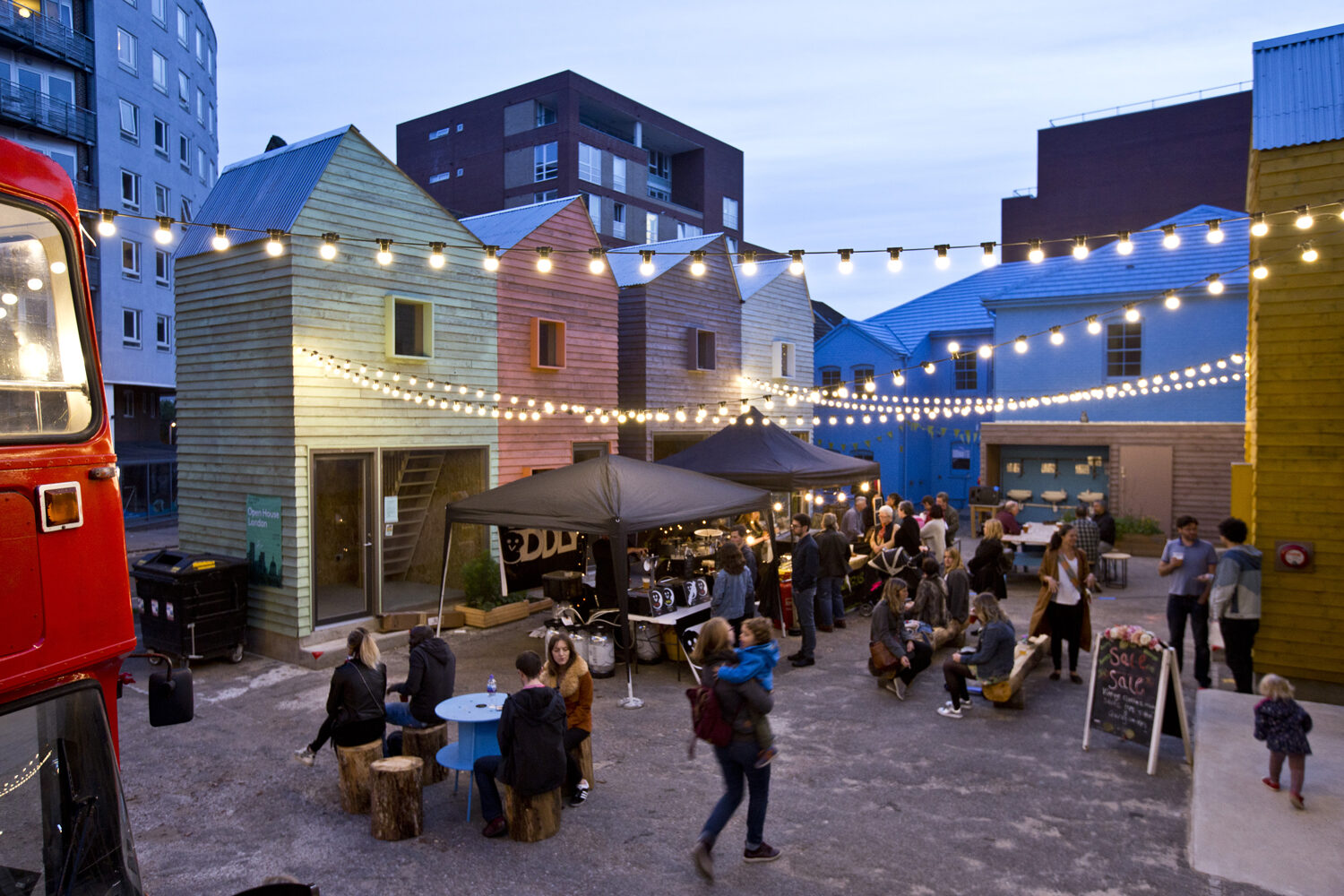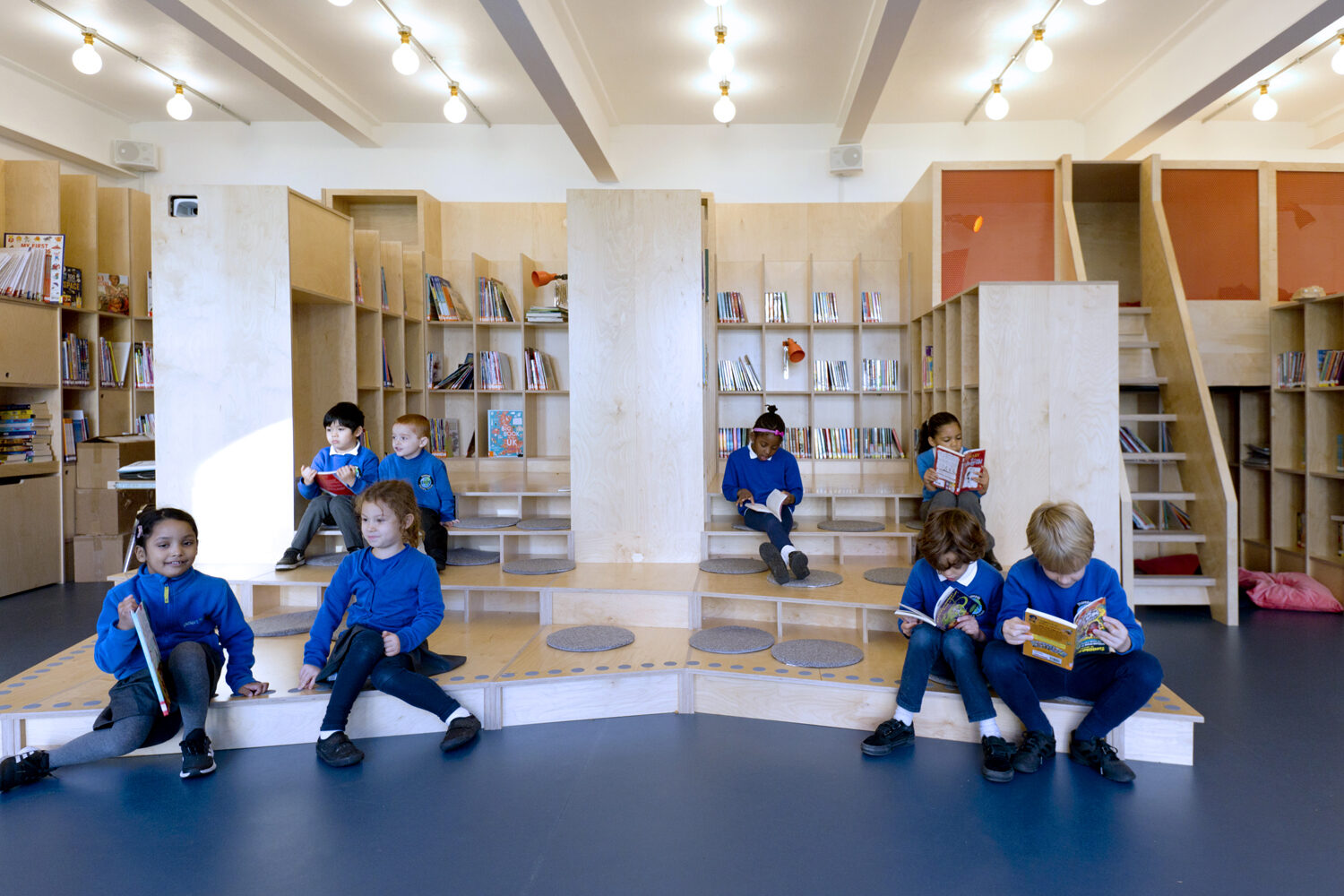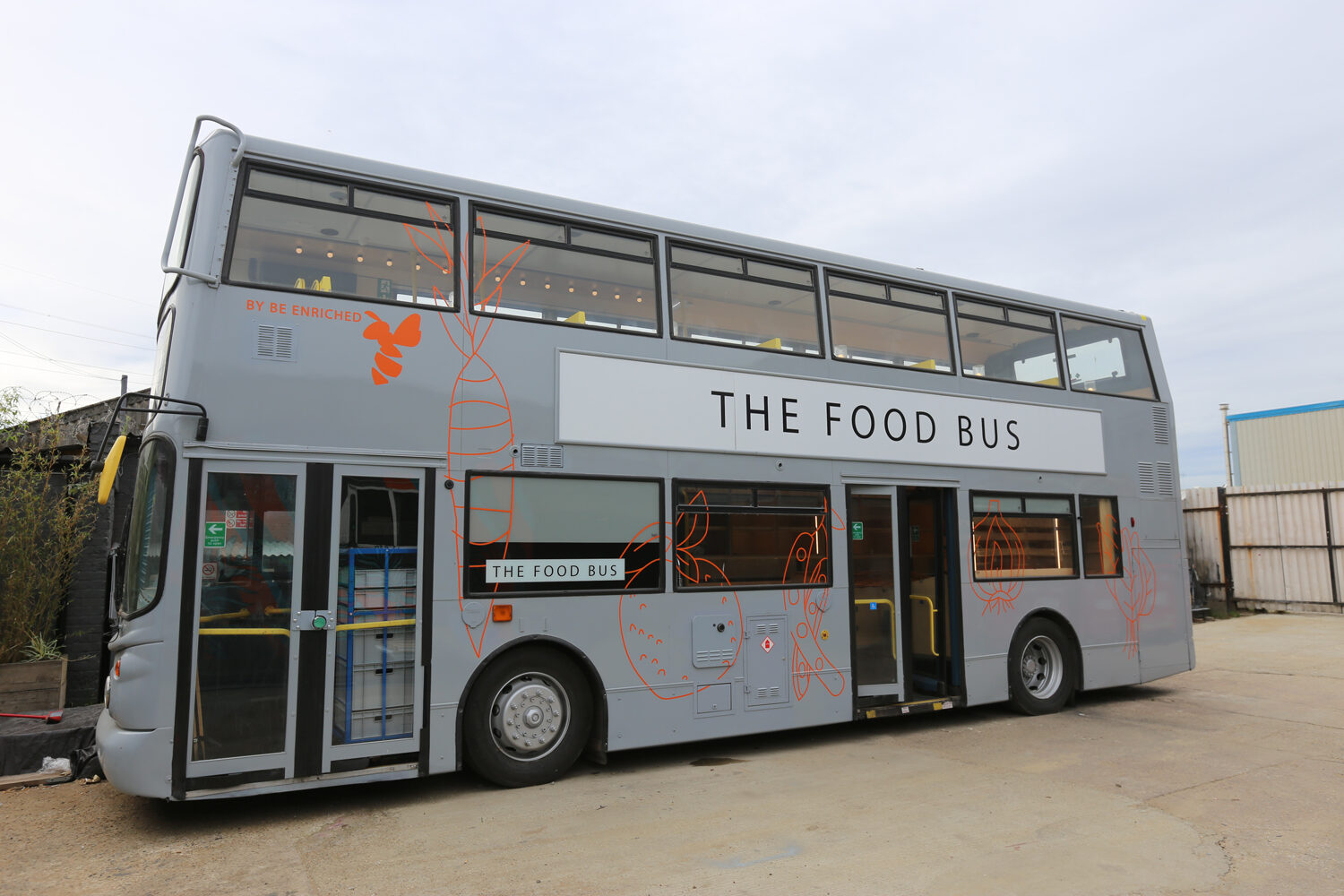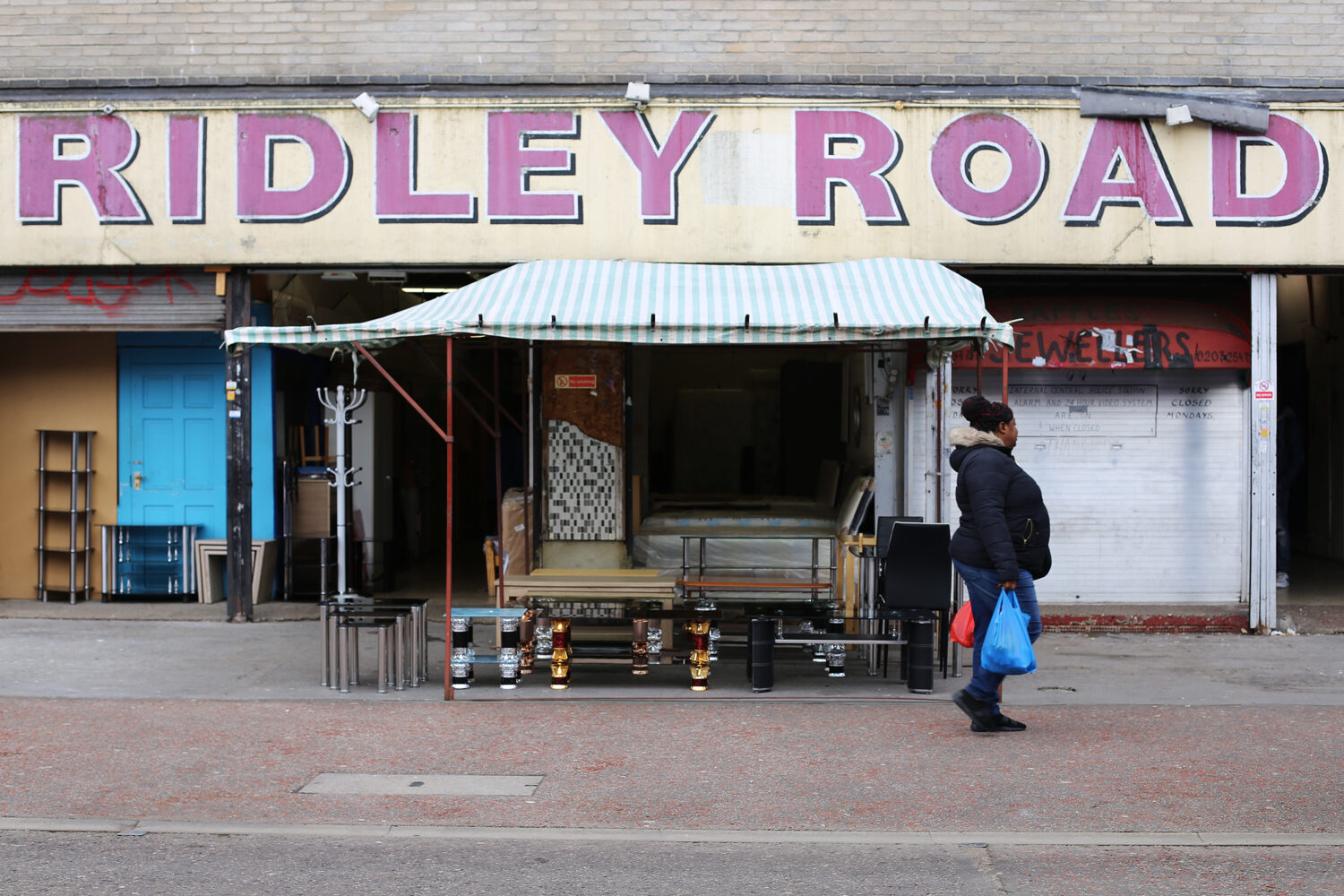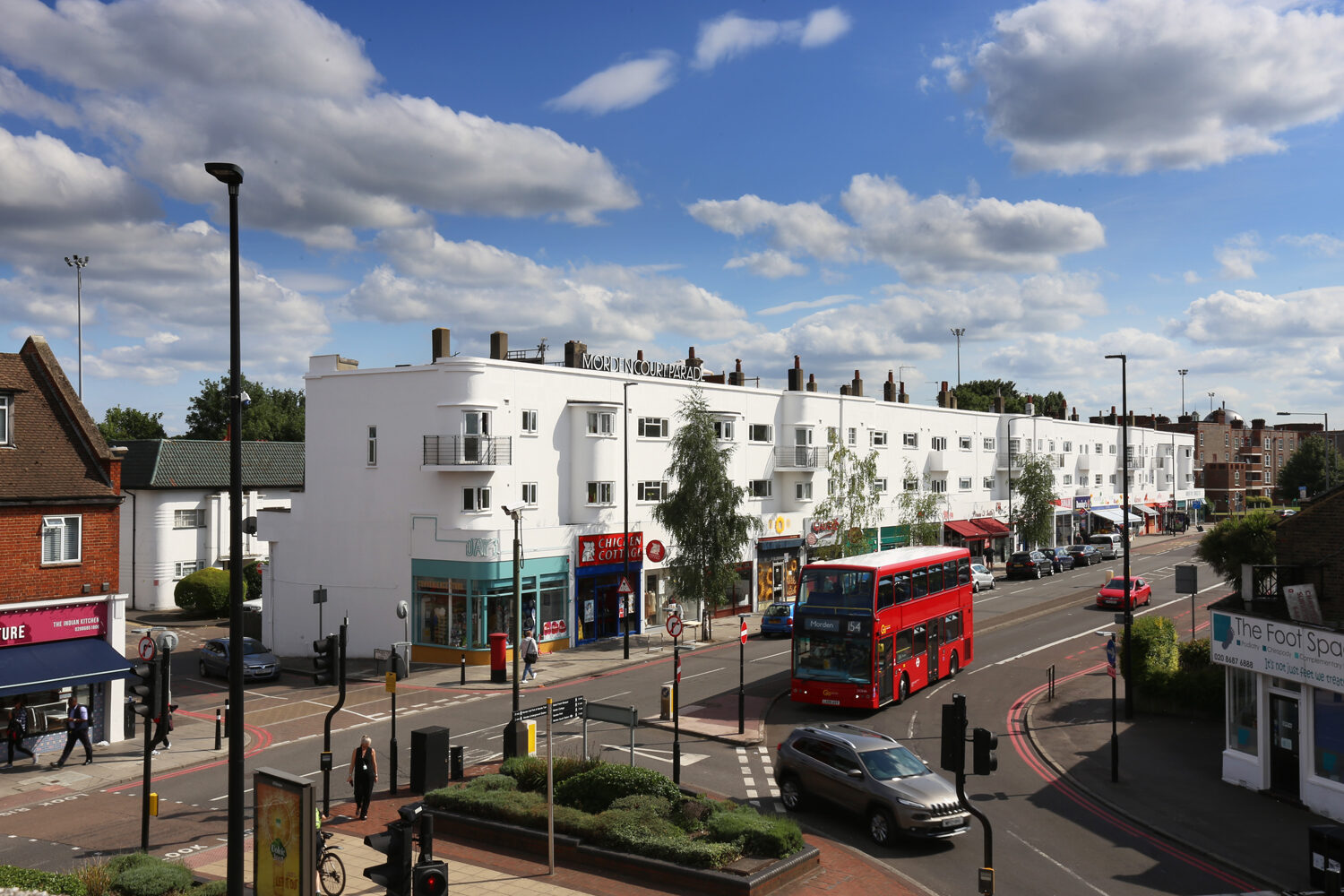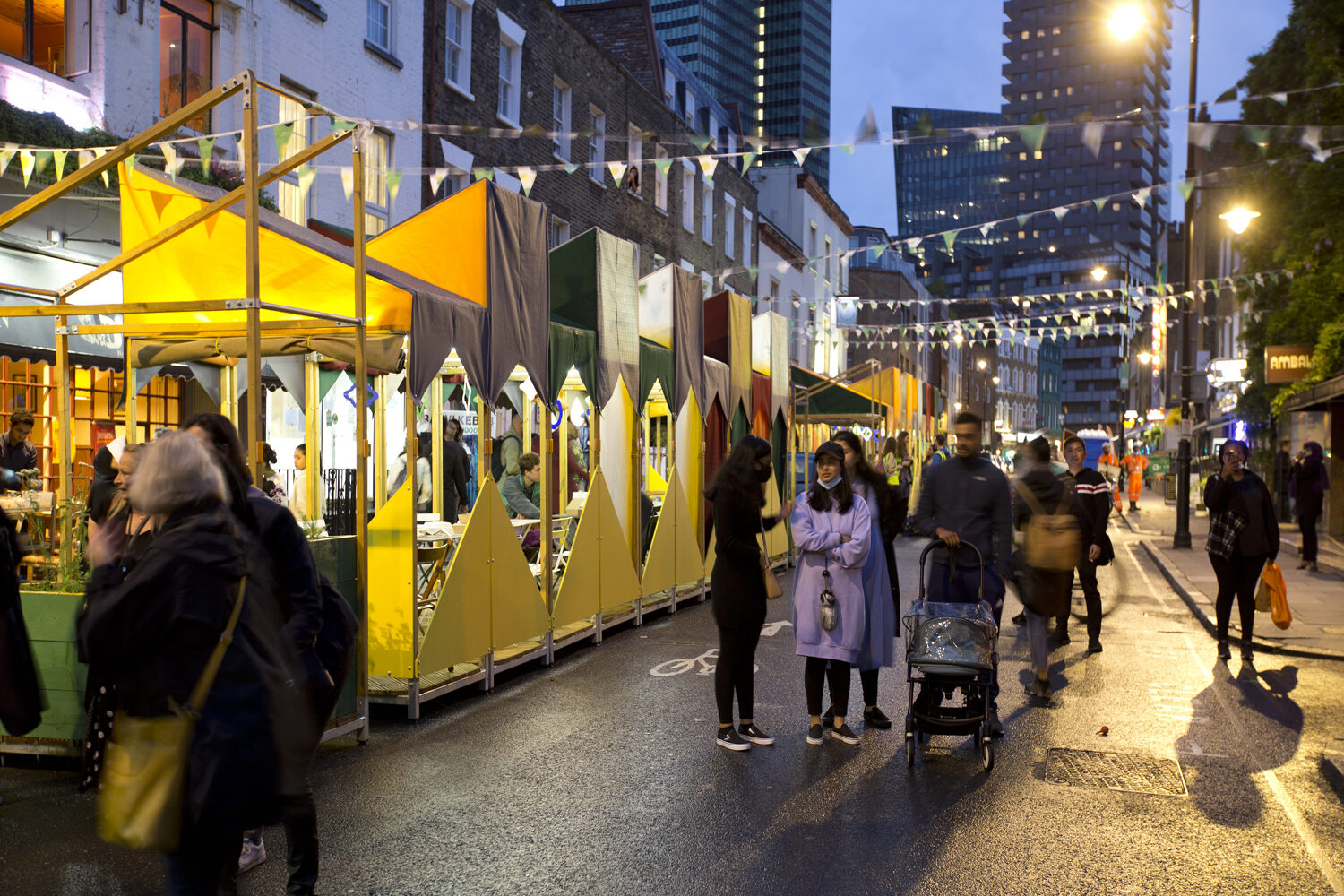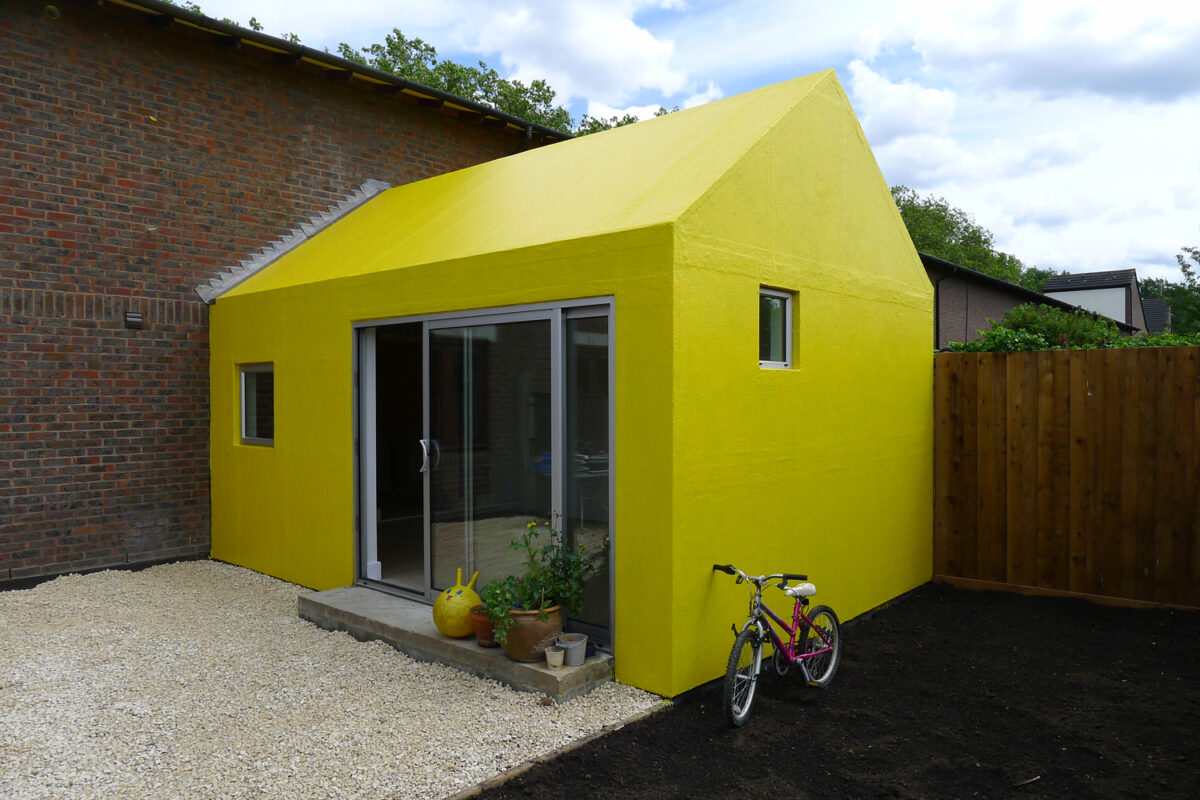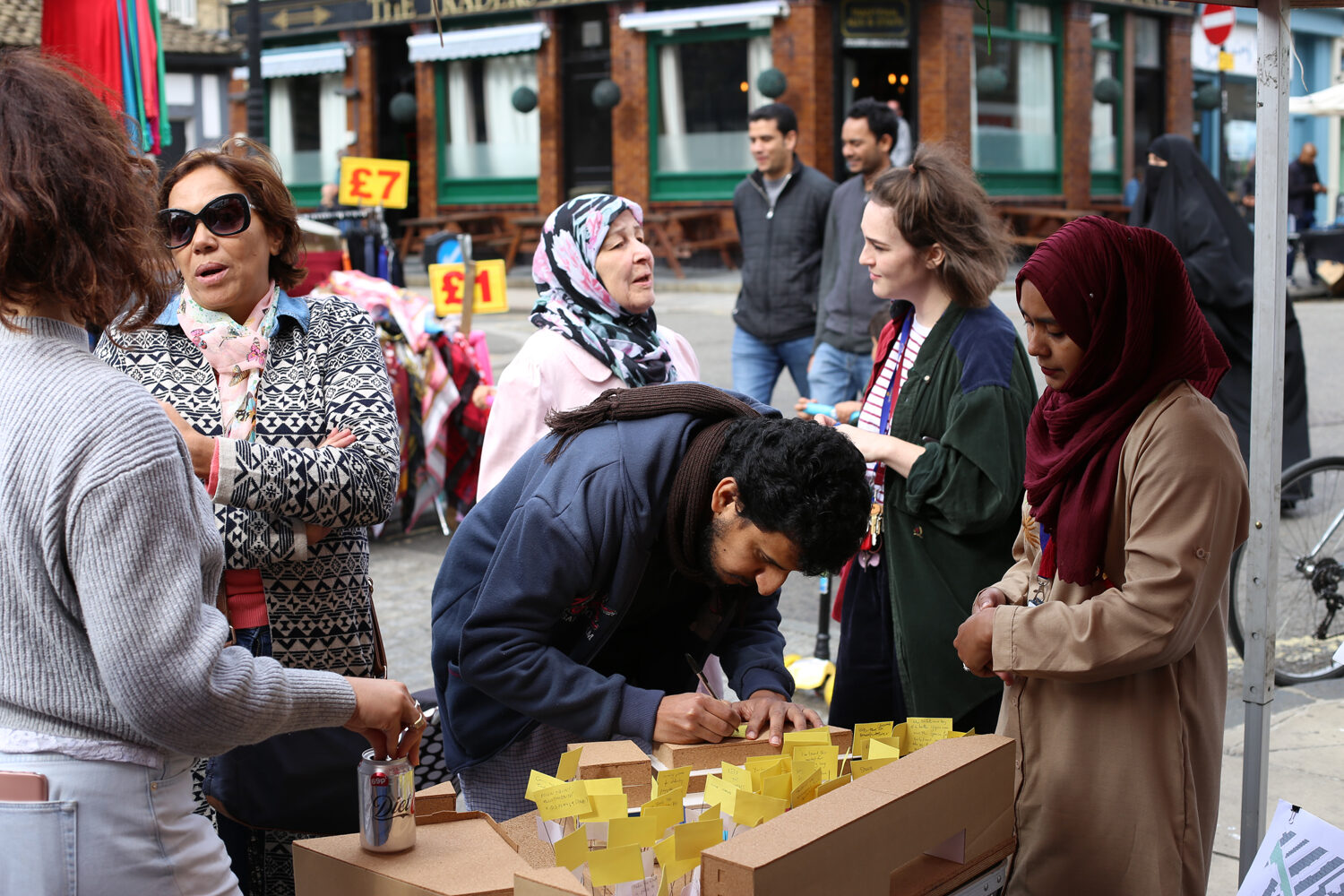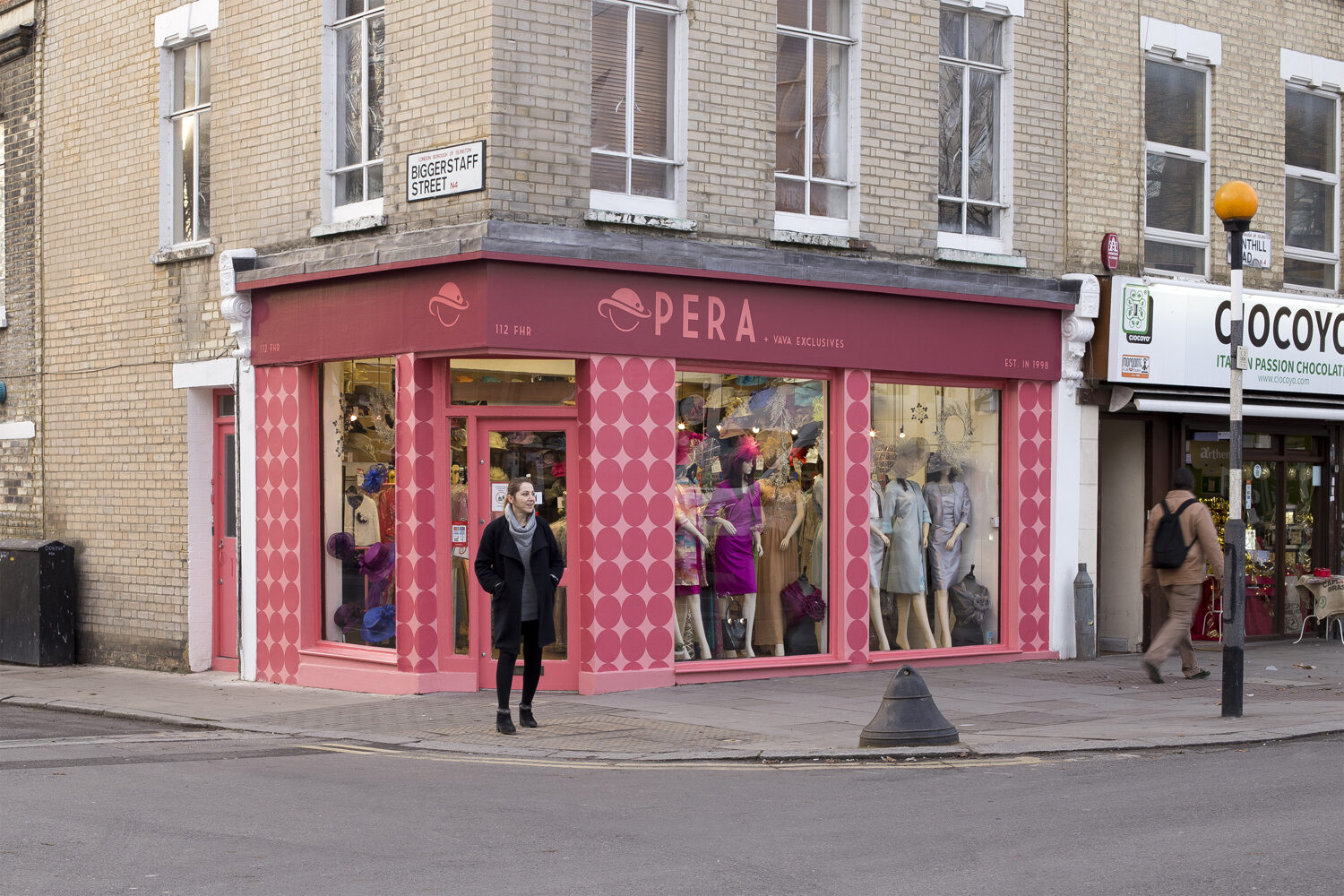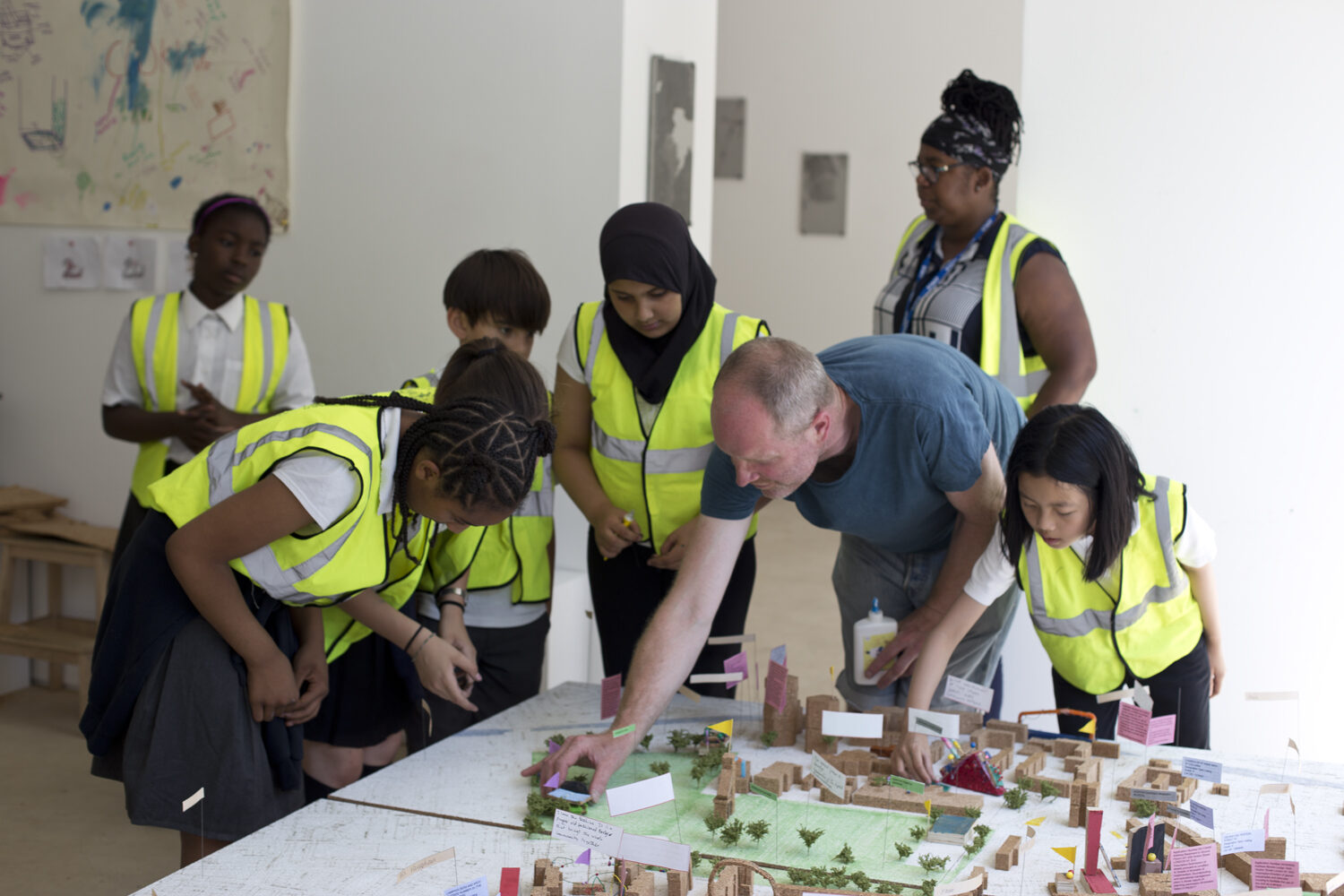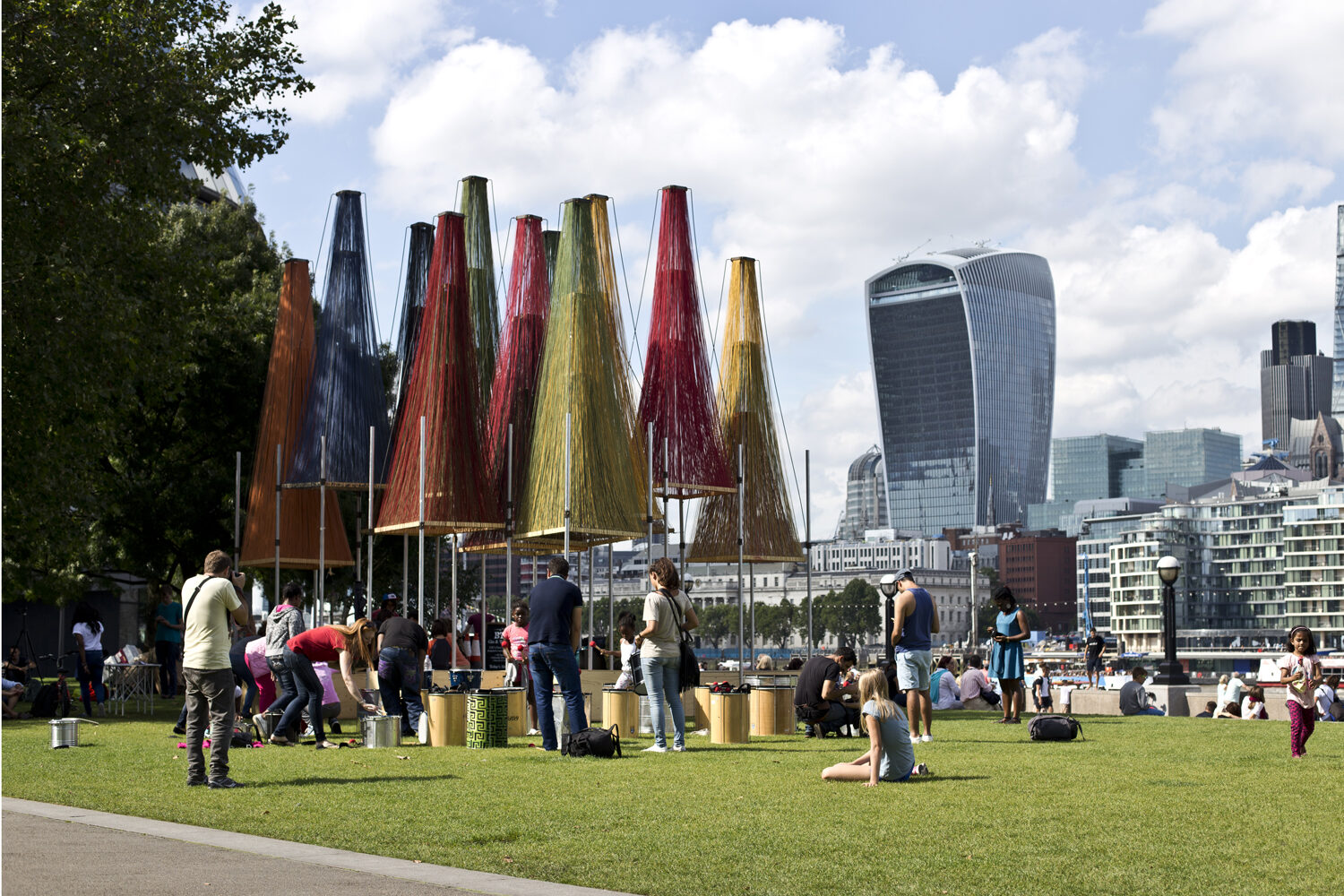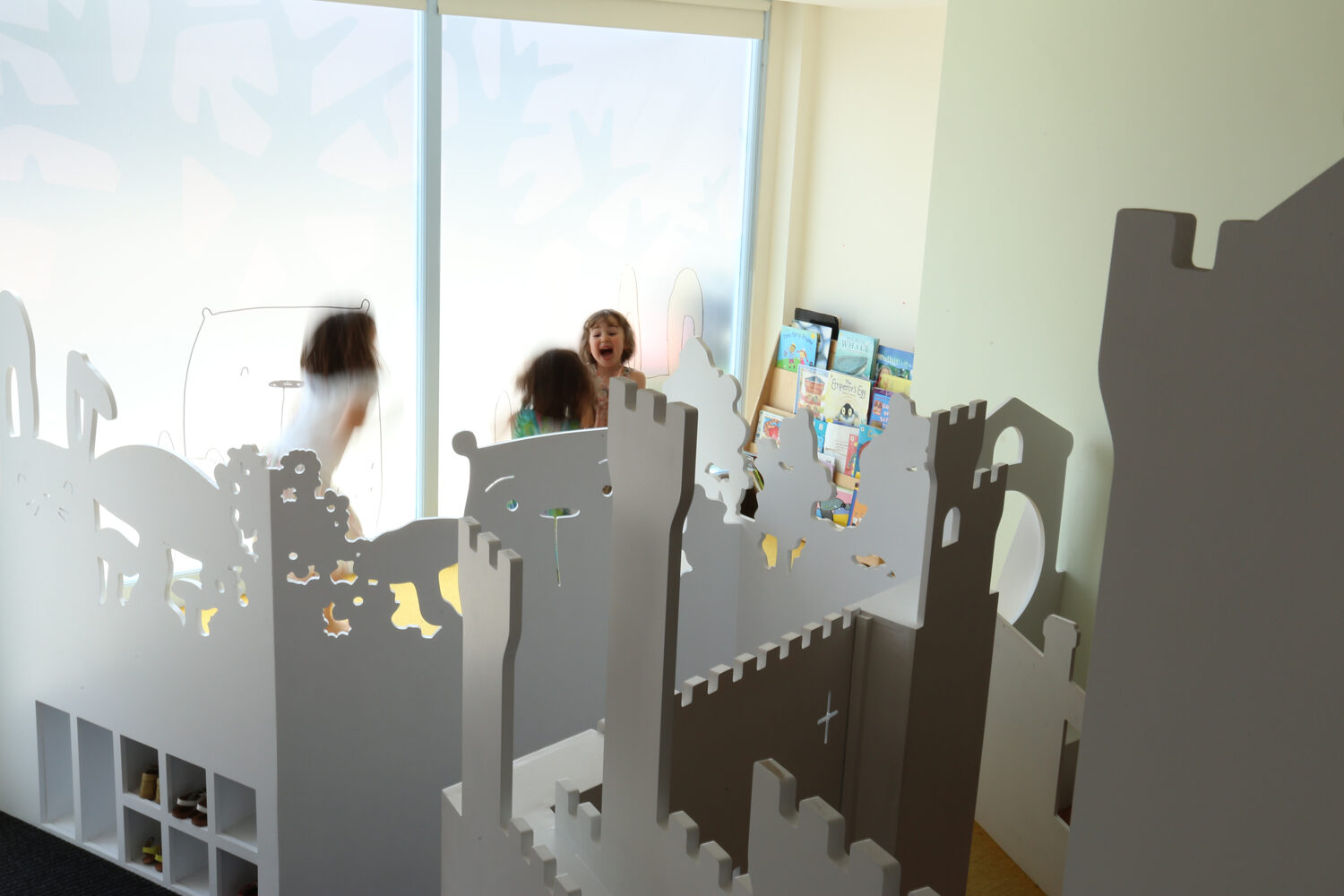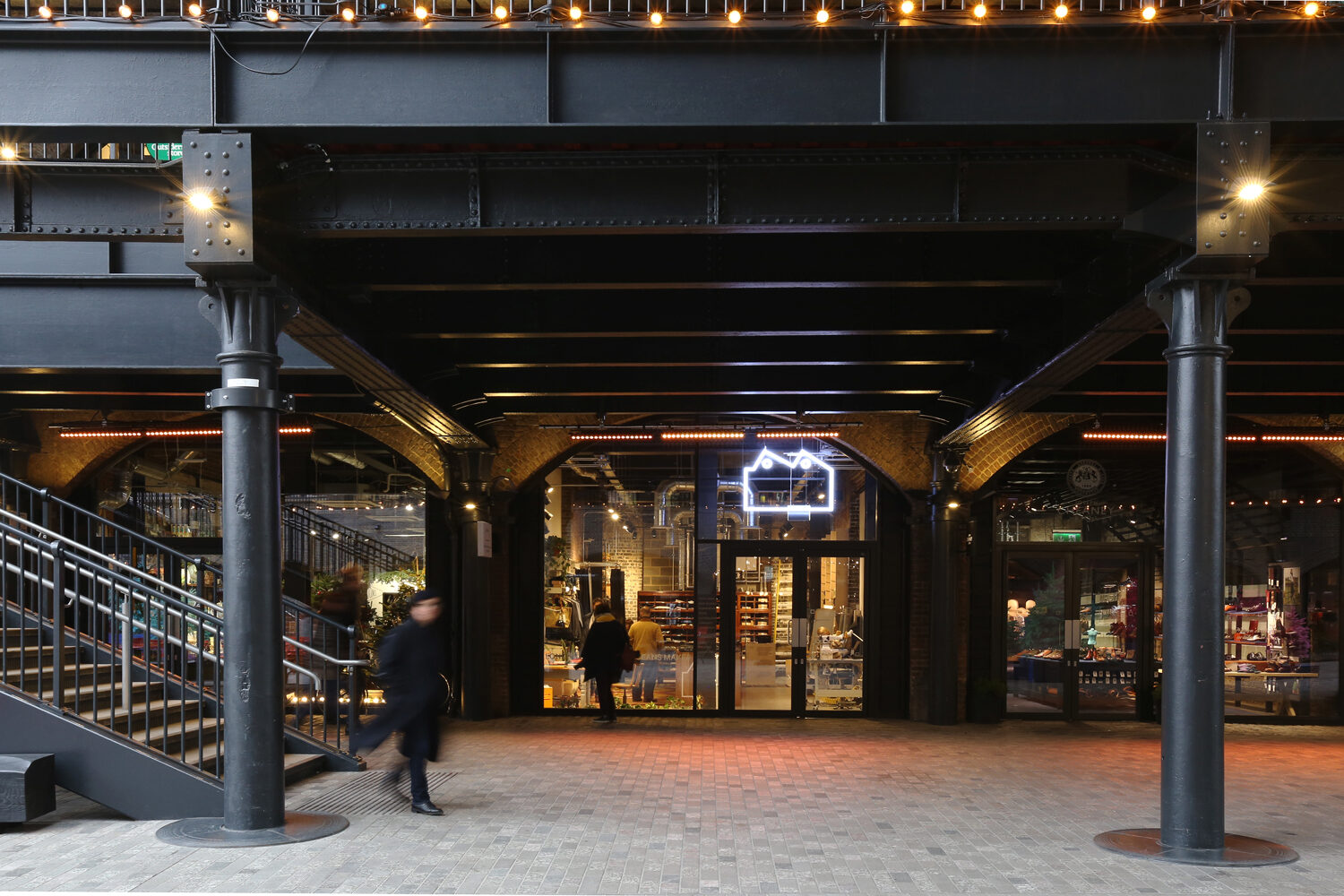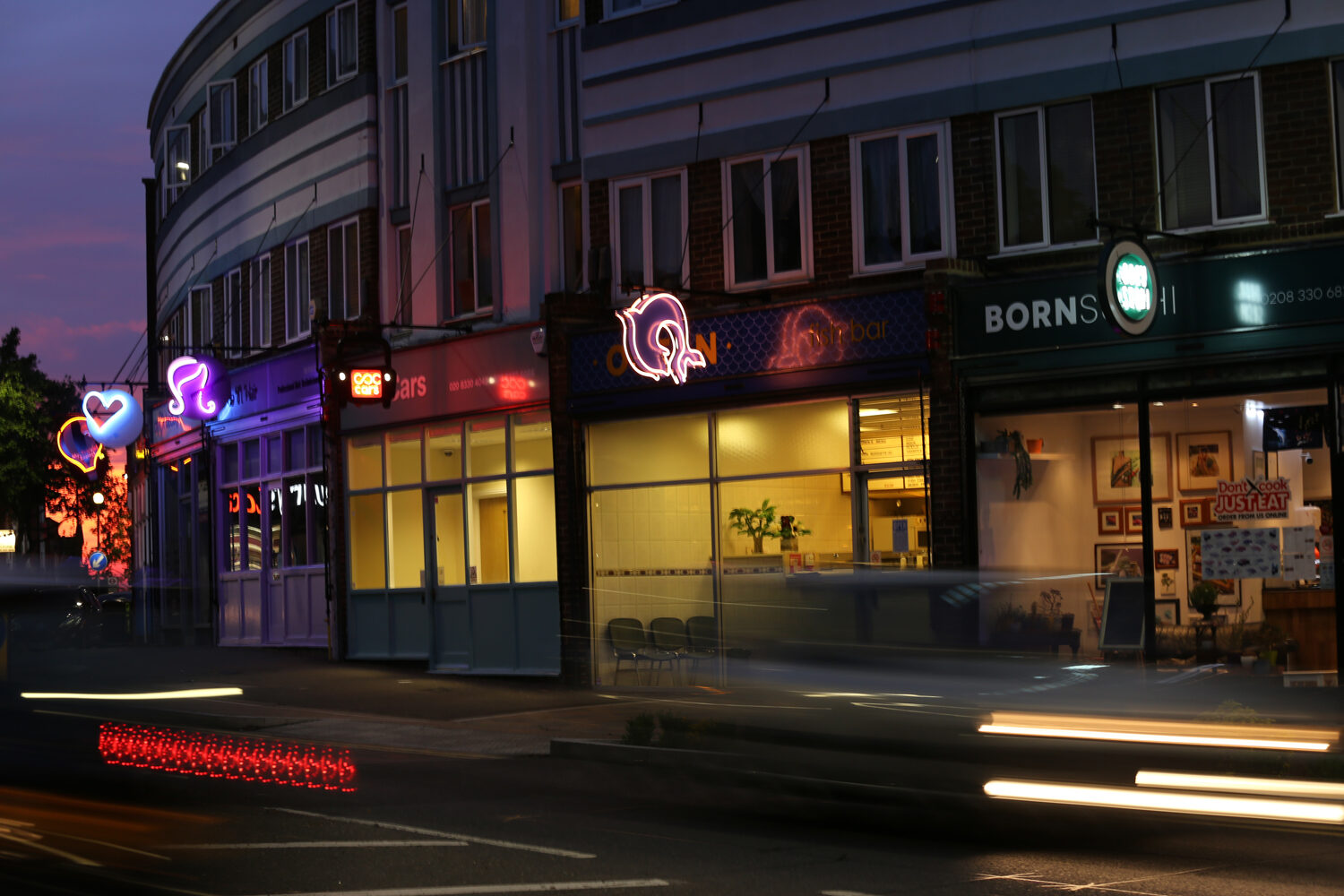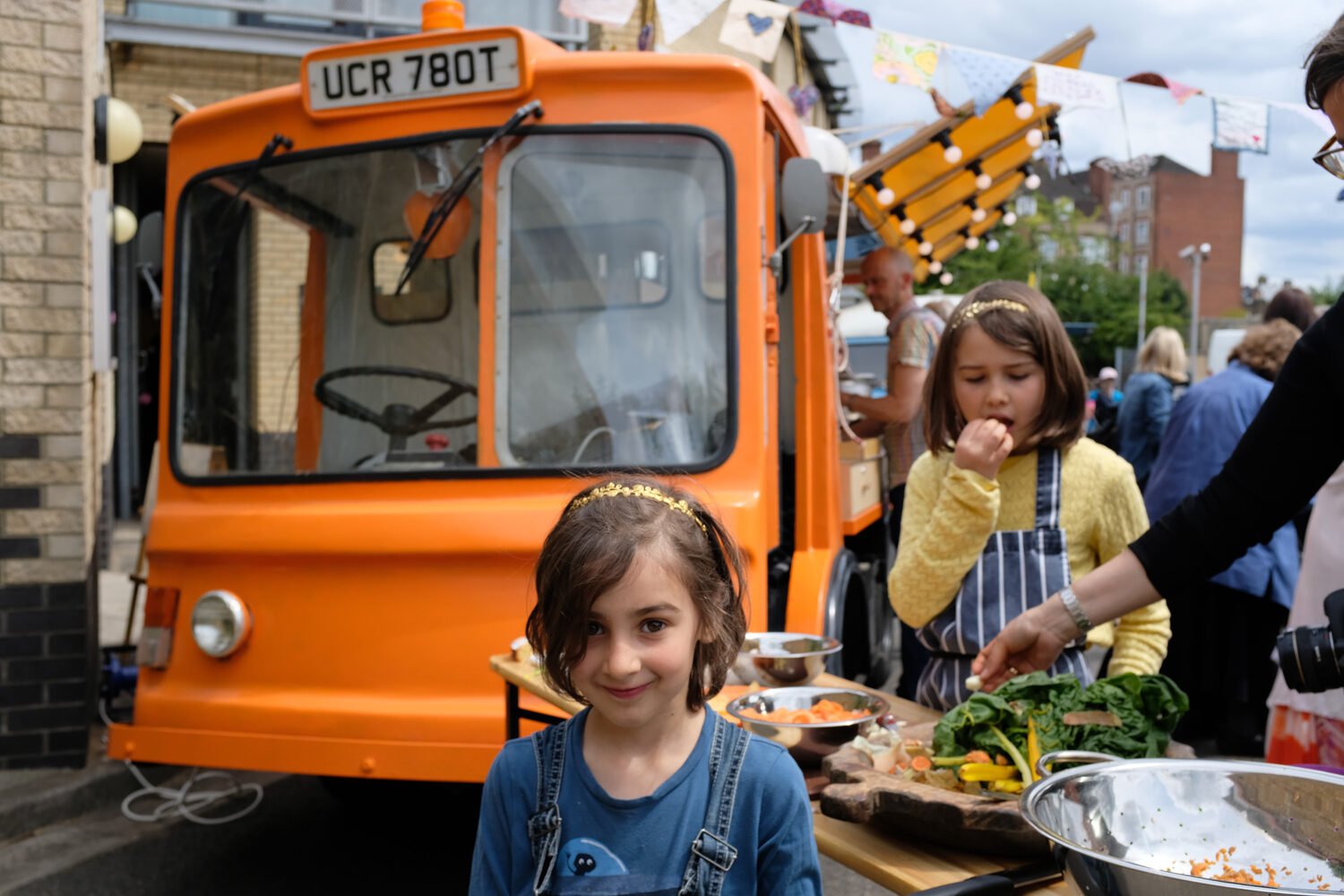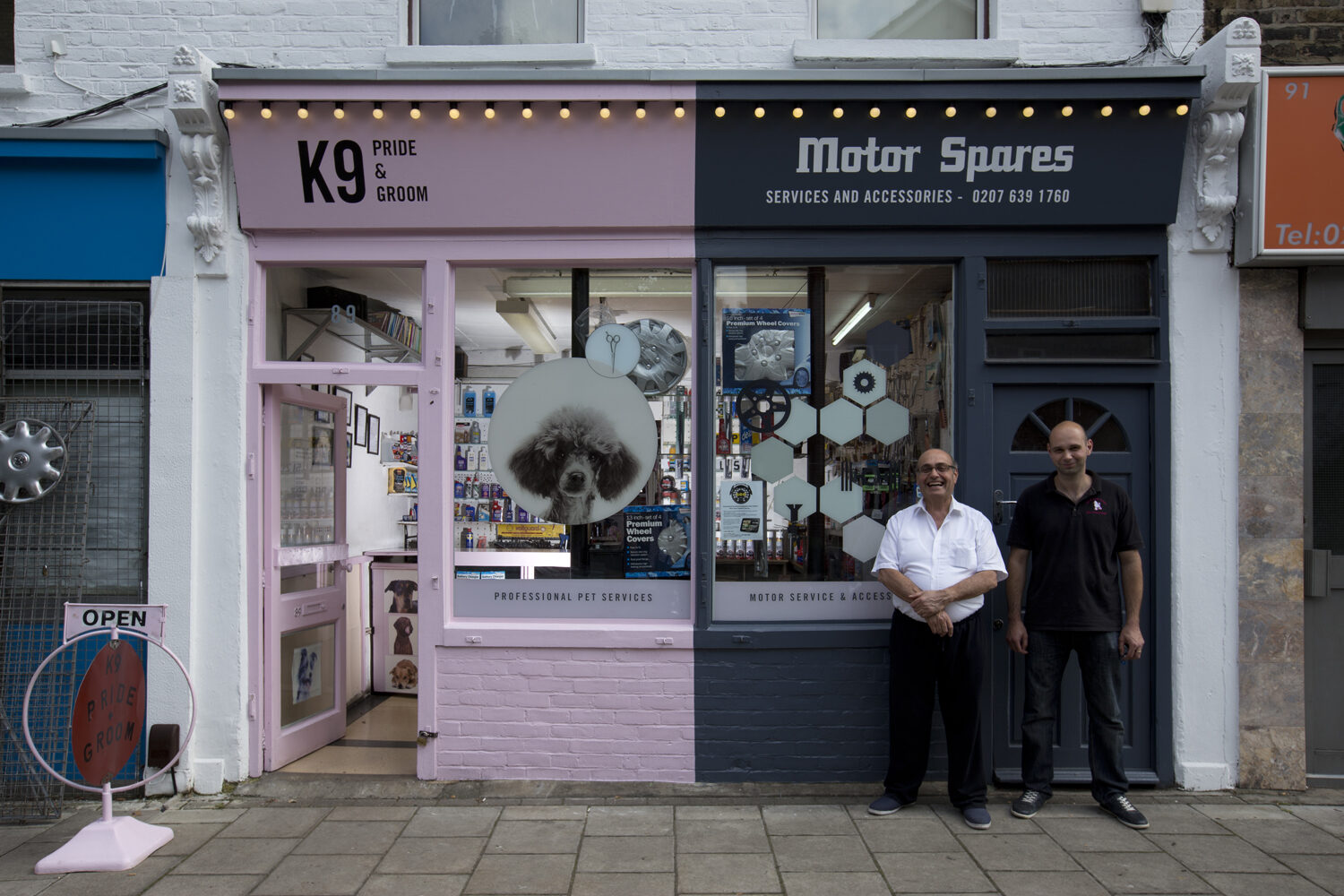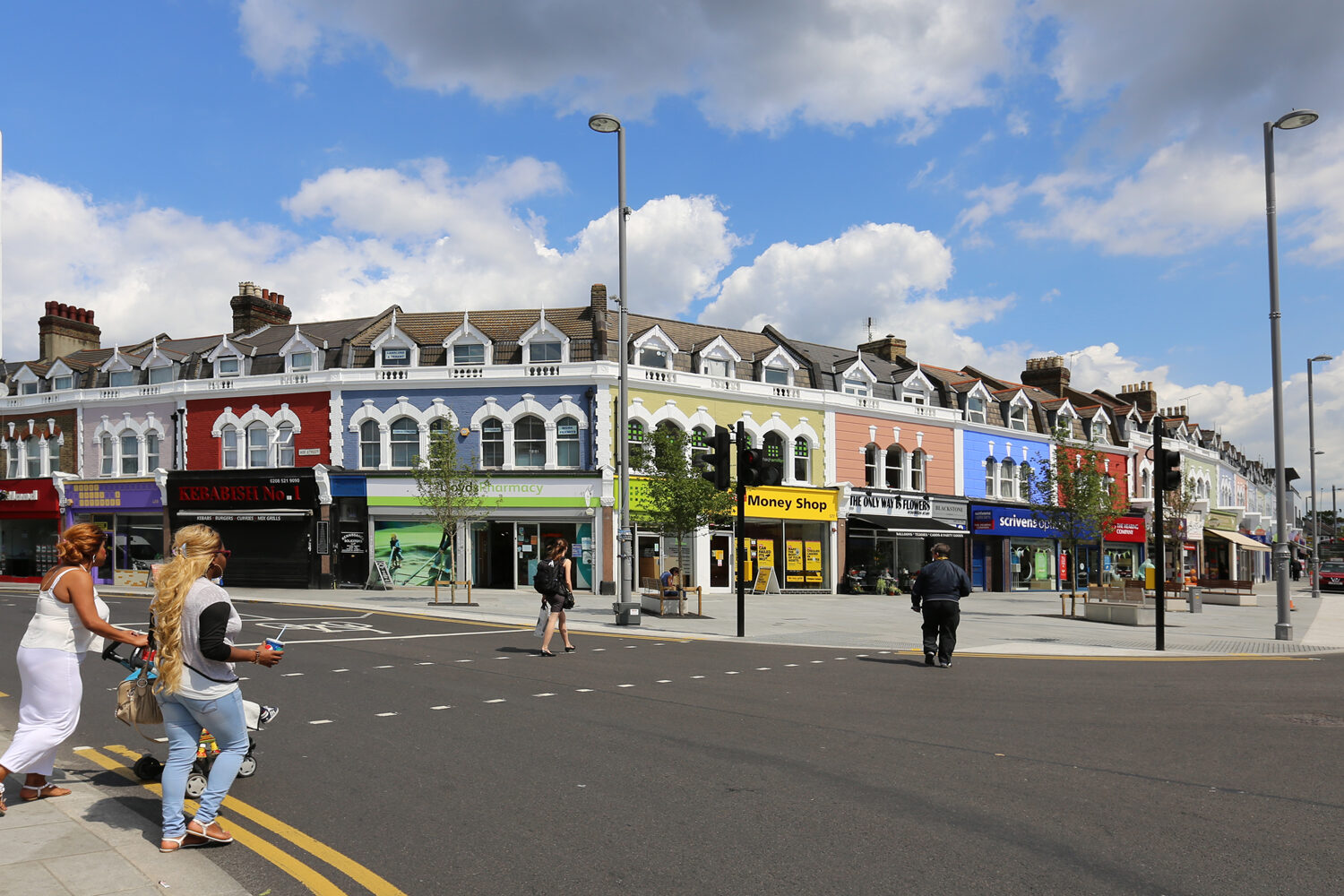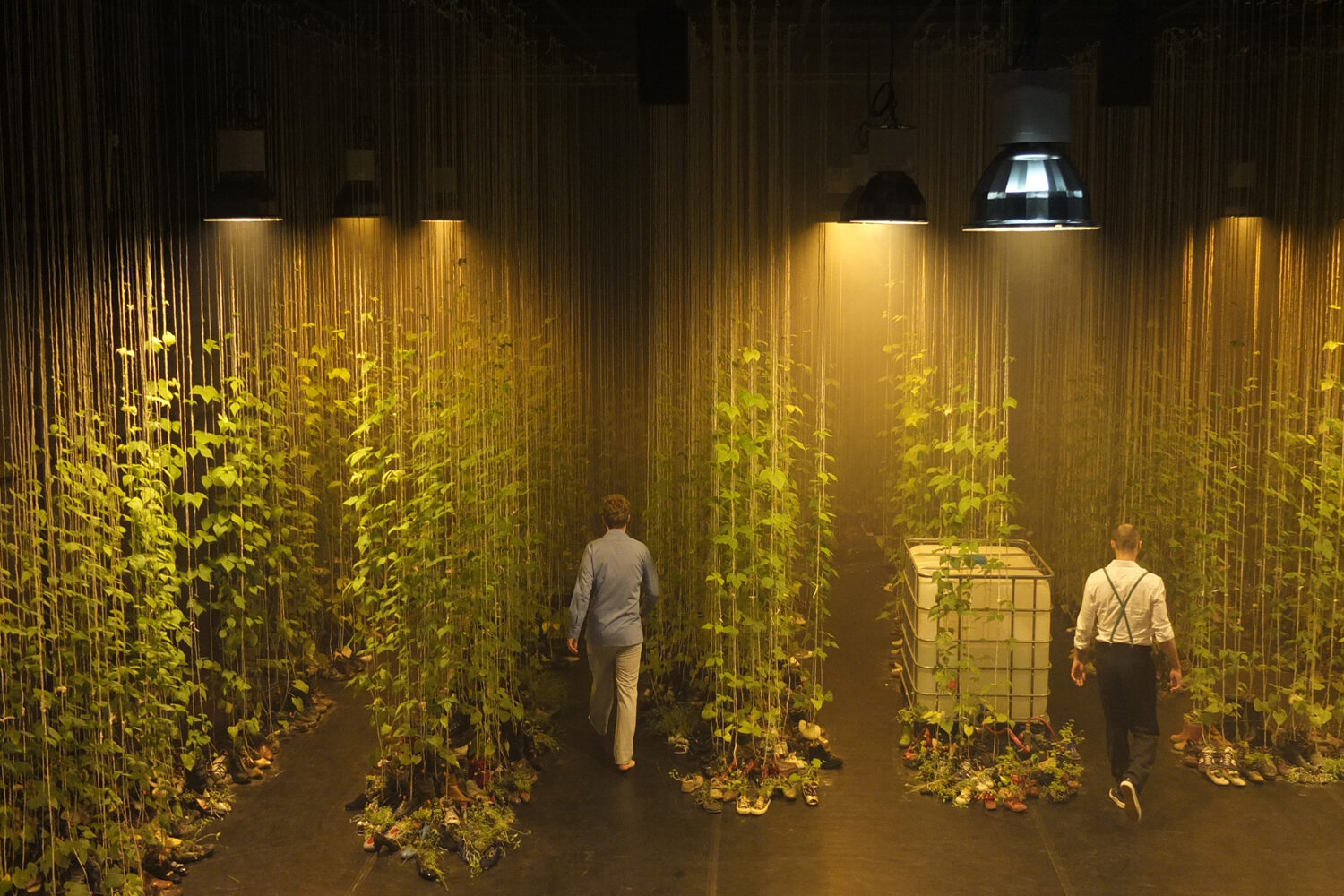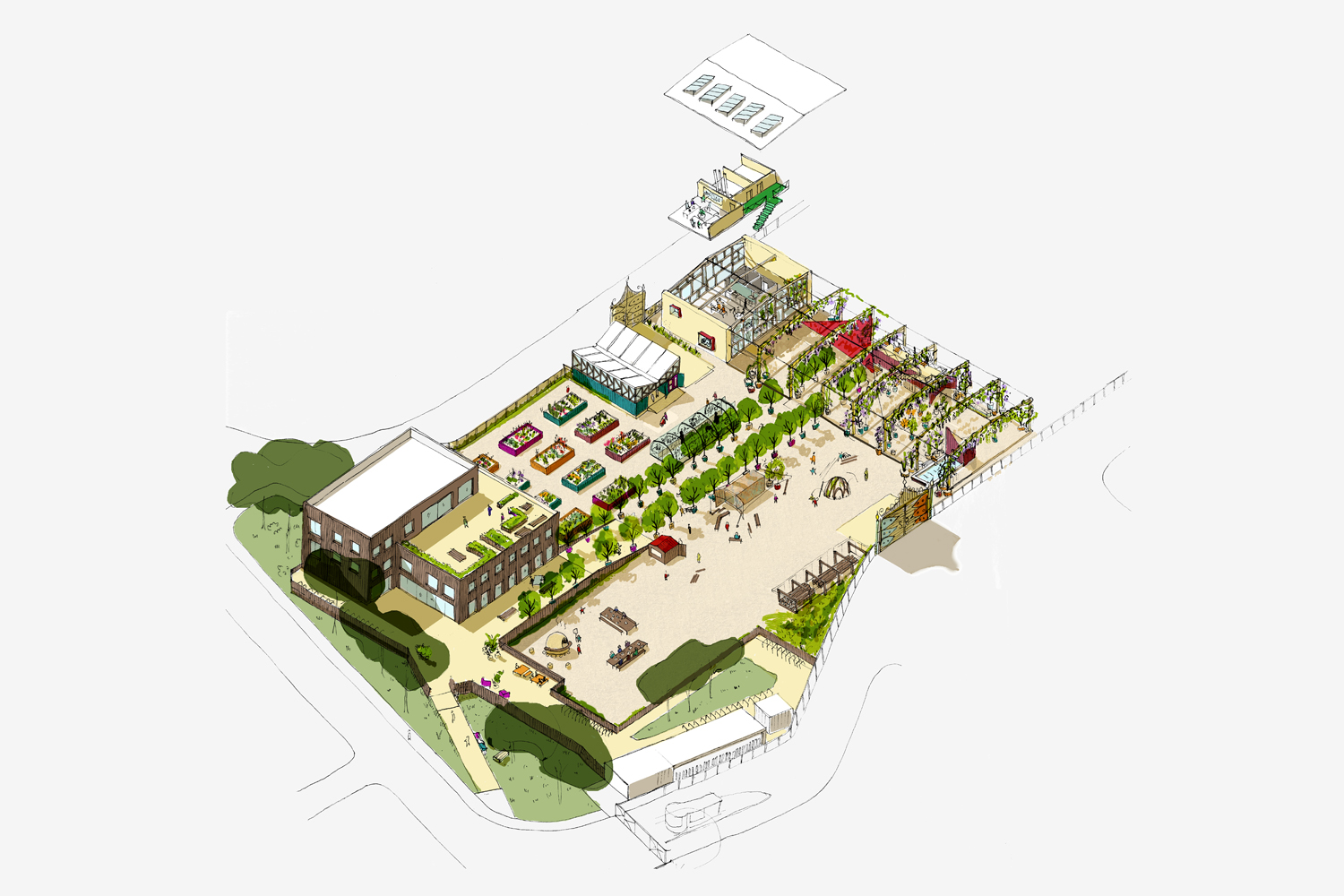
The Paper Garden is Global Generation’s new home base in Canada Water. The project includes a garden and an educational community building. Global Generation creates educational and leadership opportunities for young people, involves families and school classes in creative ecology projects and provides an immersive green oasis for local communities from its gardens in King’s Cross and Canada Water.
Conscious of the urgent need to reduce the carbon footprint of the construction process itself, the project for the new garden takes a radical approach to sustainability.
We stripped the metal cladding off a redundant industrial shed and retained the slab, roof and steel frame. The walls of the building are made from cordwood, an age-old construction method using short length of timber logs from Epping Forest tree pruning bedded in lime mortar. We used a cavity wall construction for advanced thermal performance. The corner quoins are made from reclaimed oak railway sleepers donated by Network Rail. The floors are made from 200 doors reclaimed from a police station that is being demolished locally, plywood was sourced from upcycled construction hoarding and the windows are reject stock donated by Scandinavian window manufacturer, Nordan.
Built from 60% reused materials (measured by volume), we are easily exceeding the LETI (Low Energy Transformation Initiative) 2030 target. In fact, we are 7 years ahead of one of the most ambitious targets set by any organisation in the UK.
The project has required us to re-design the entire construction process to facilitate experimentation, adjustment and participation within the confines of a modest construction budget. Using prototypes and mock-ups we reinvented vernacular construction techniques to respond to contemporary challenges.
Working in this way we have rallied more than 3000 volunteers to help with the built, each one of them taking the message about sustainable building back to their communities.
The construction process itself has become an integral part of Global Generation’s engagement activities with corporate- and community volunteers of all ages splitting logs sourced from Epping Forest and making planters and compost enclosures together. With an uncompromising focus on re-use, the project sets a precedent for sustainable construction whilst unleashing the potential of the construction process itself to contribute to greater community coherence in an area of London that is changing.
